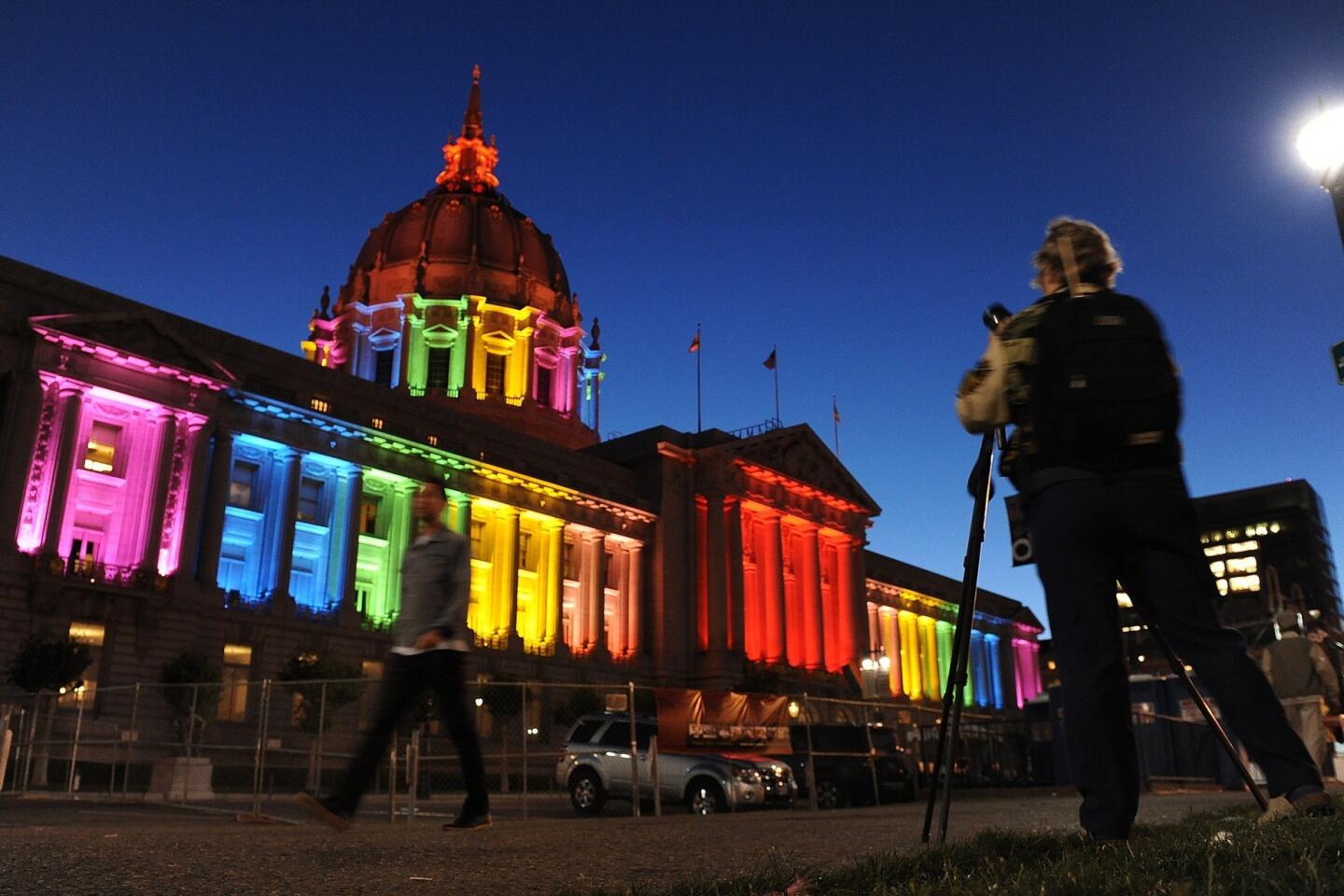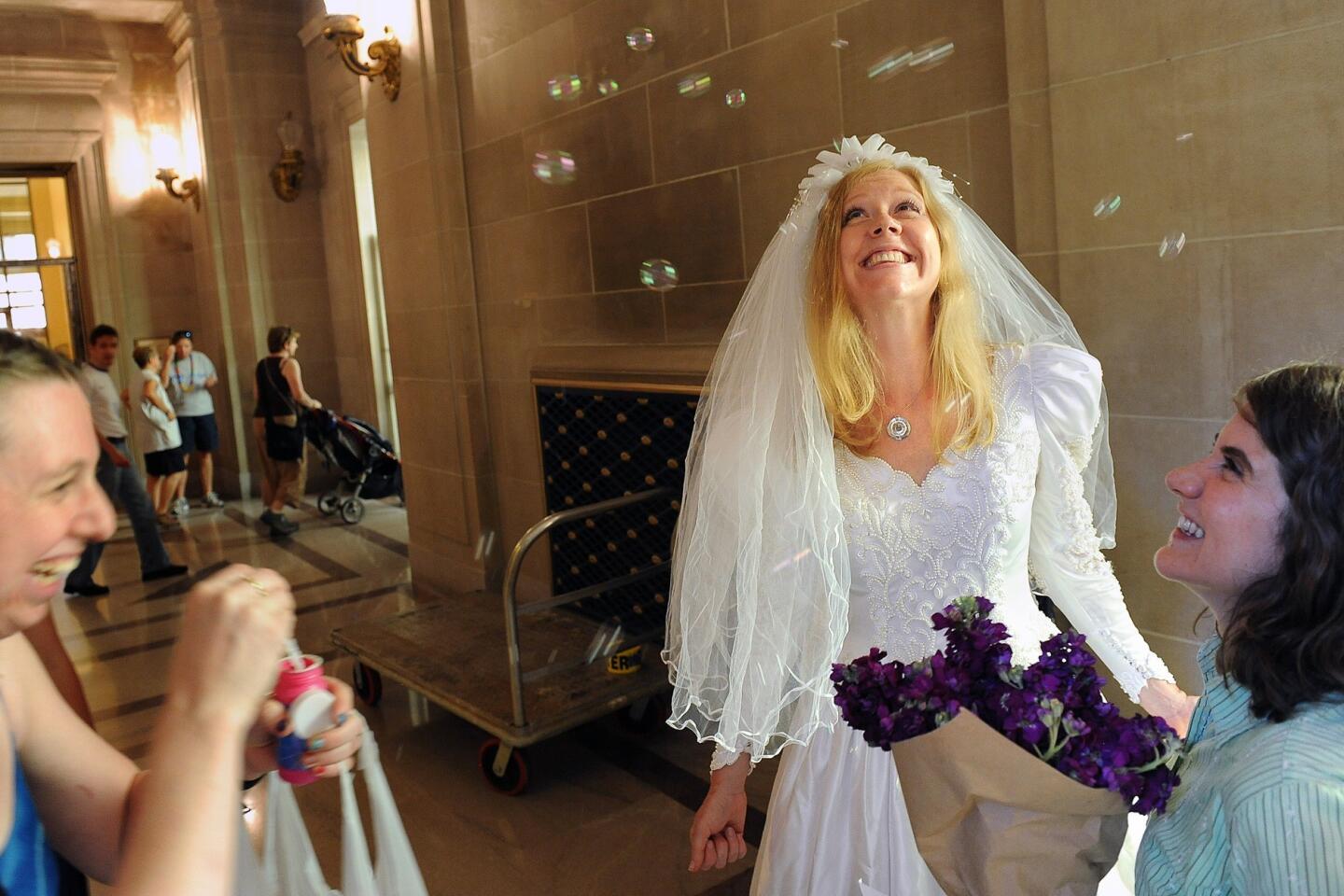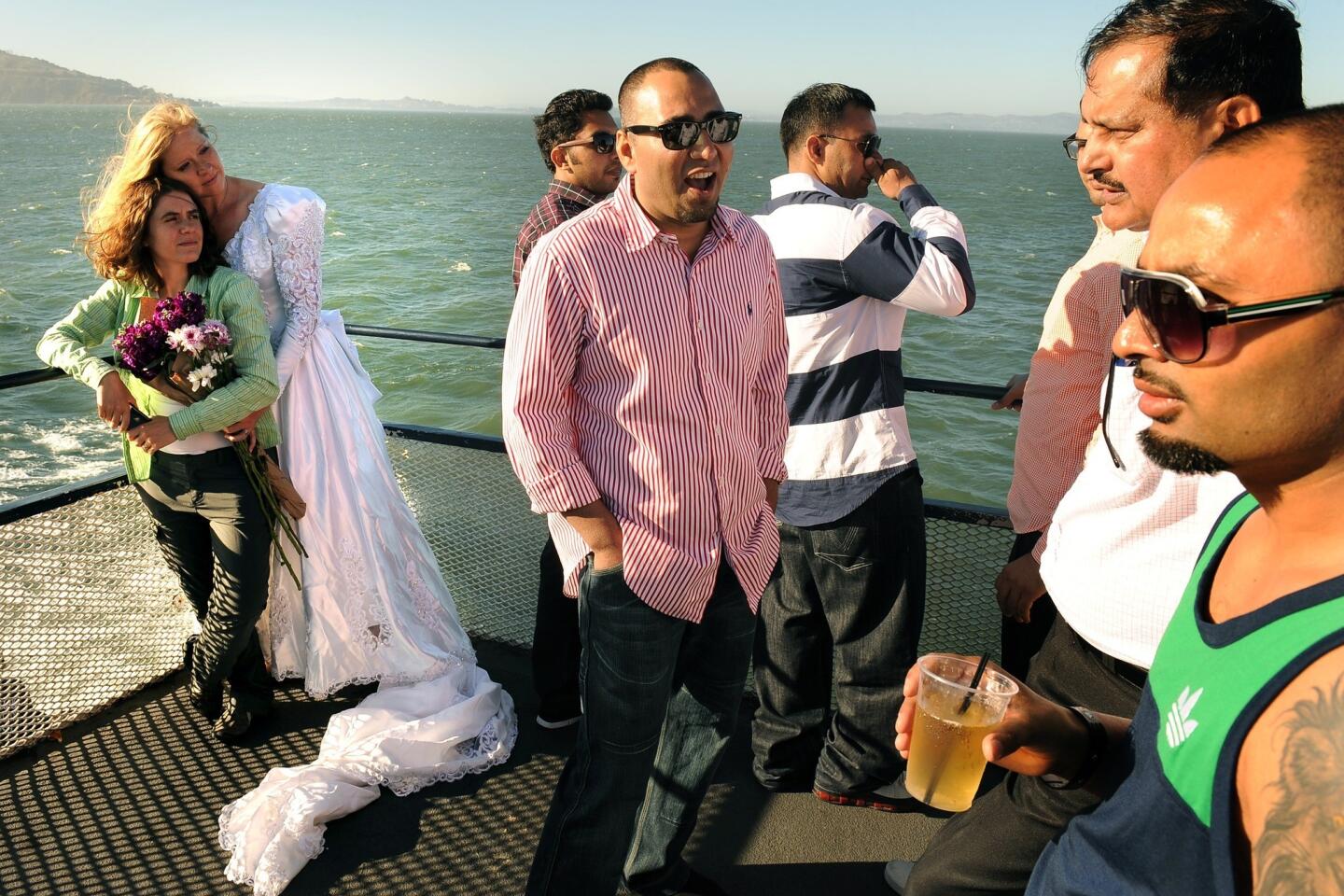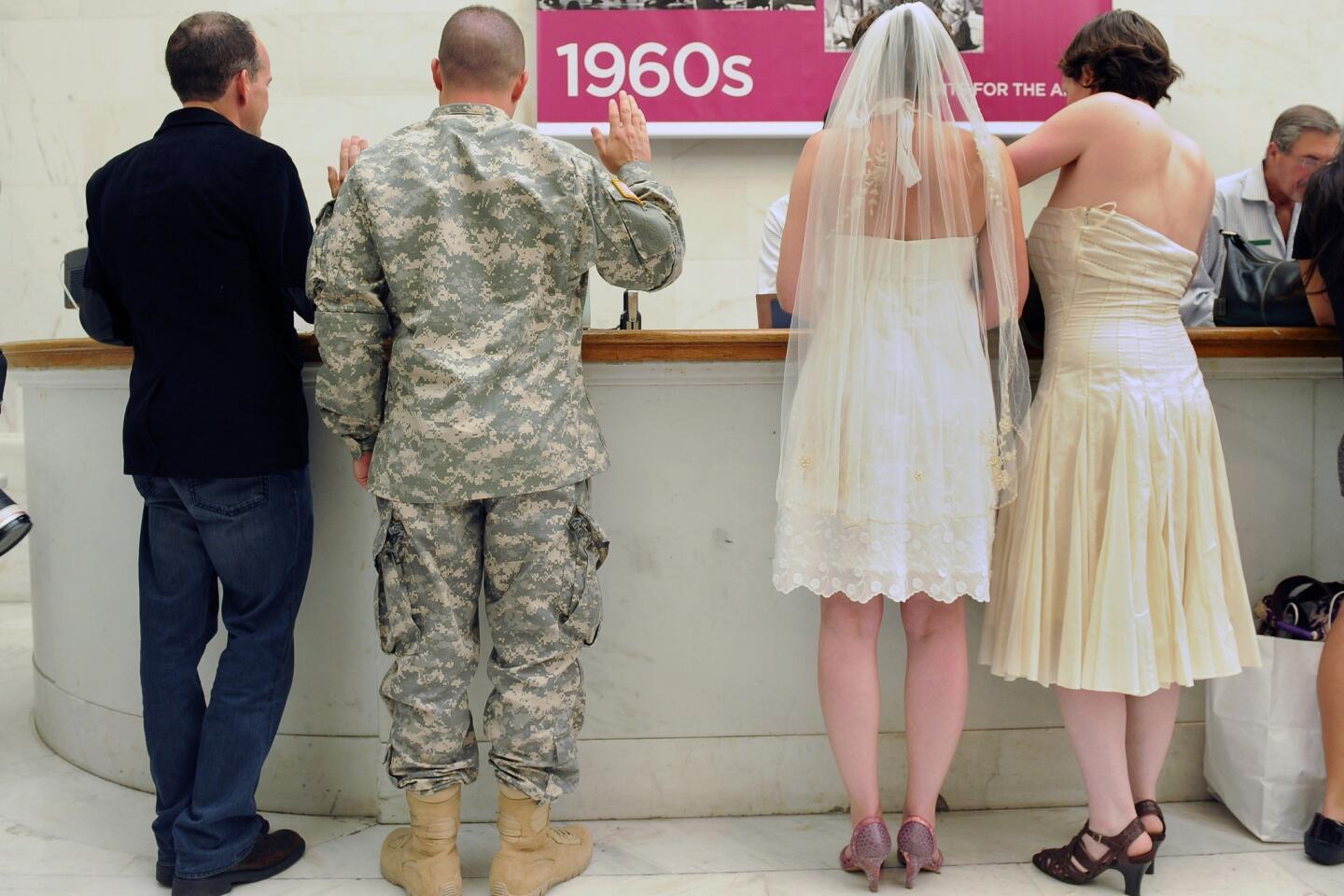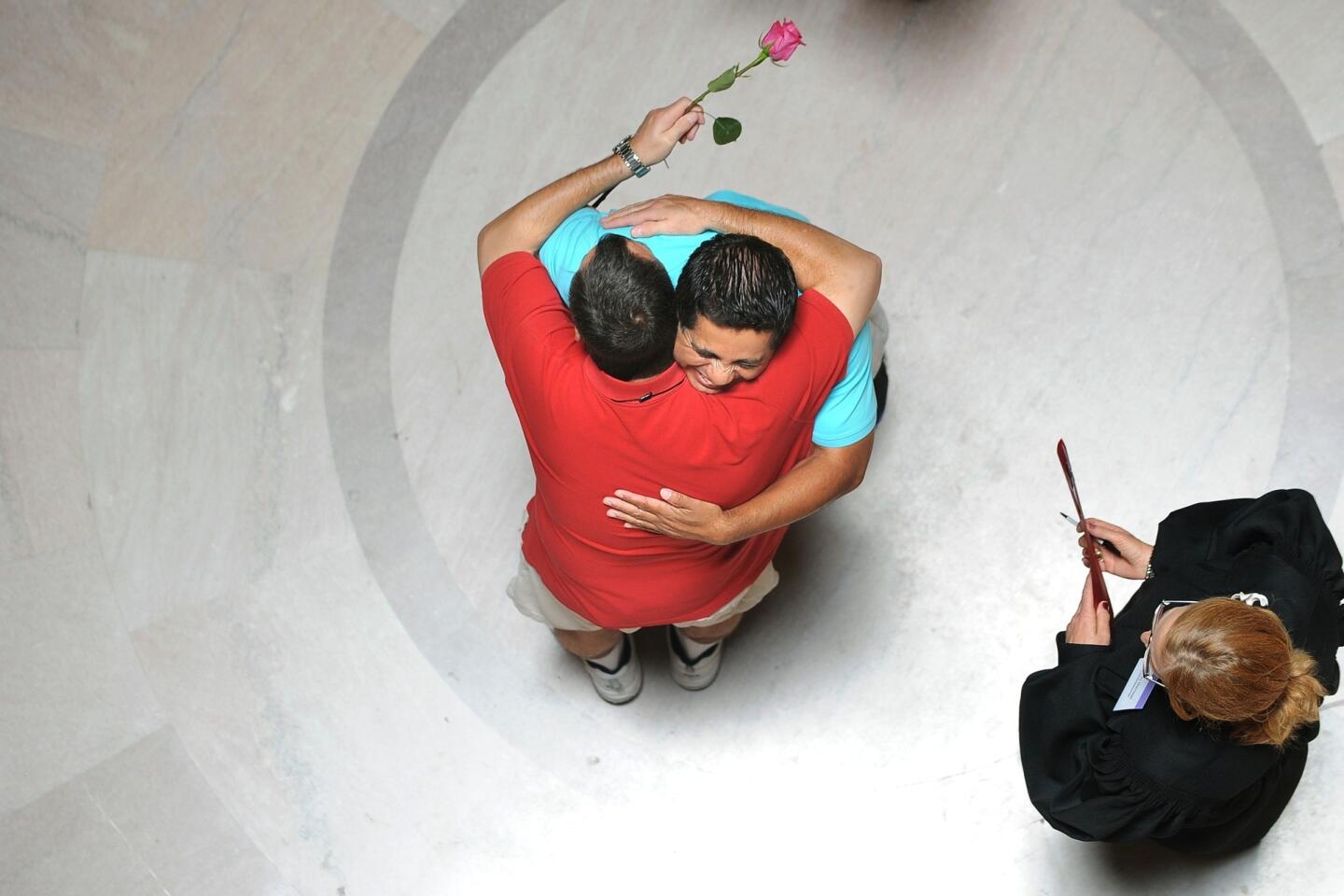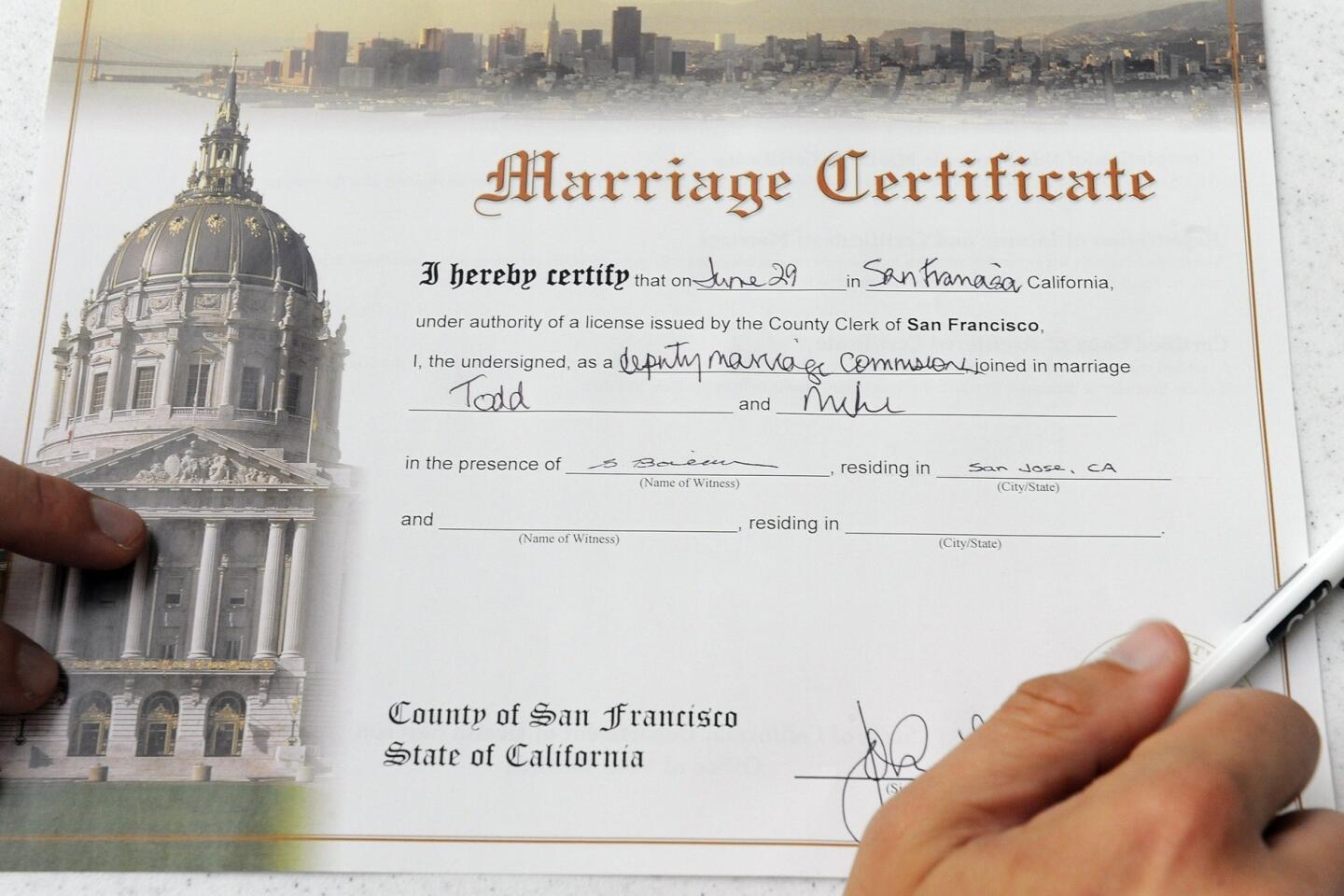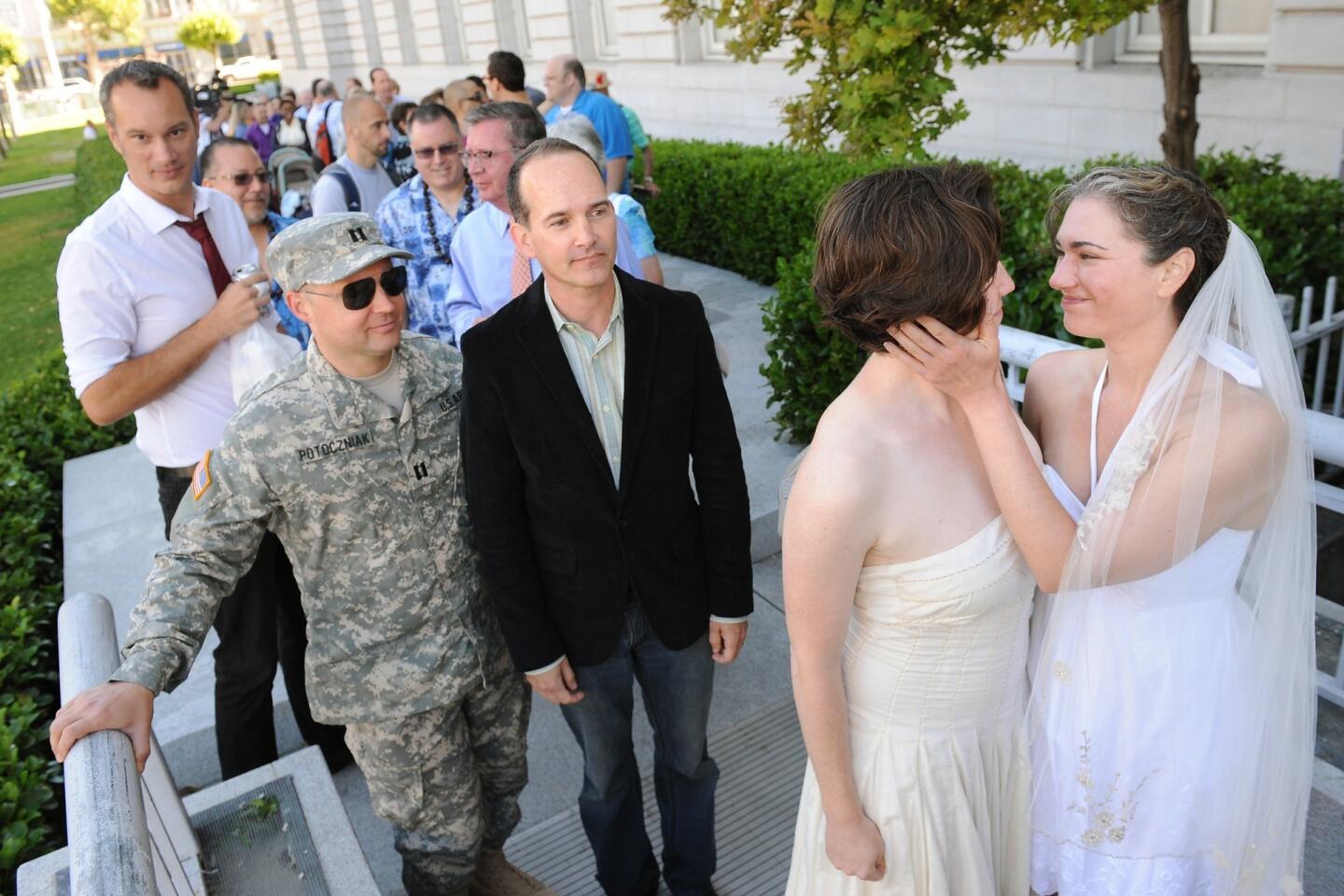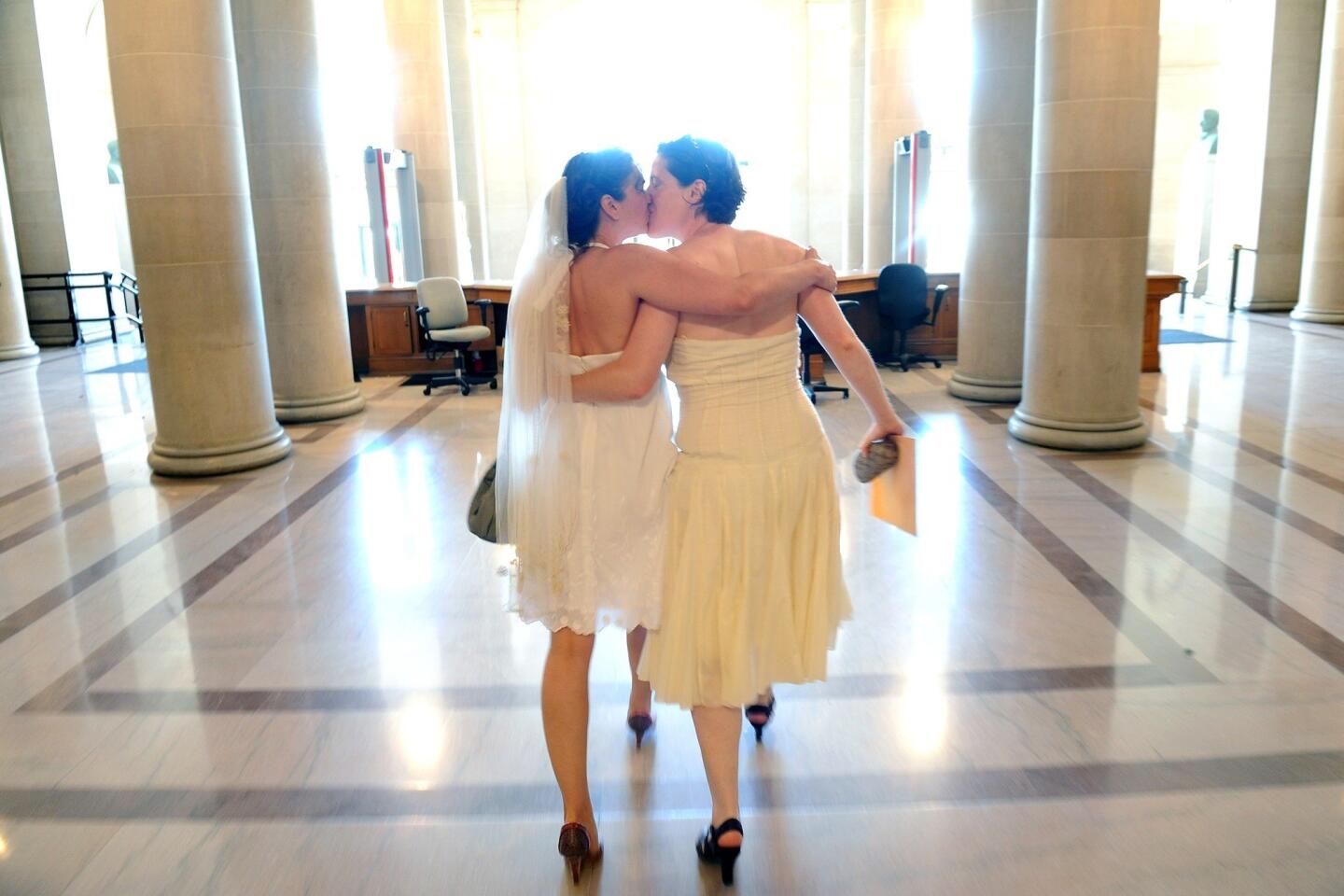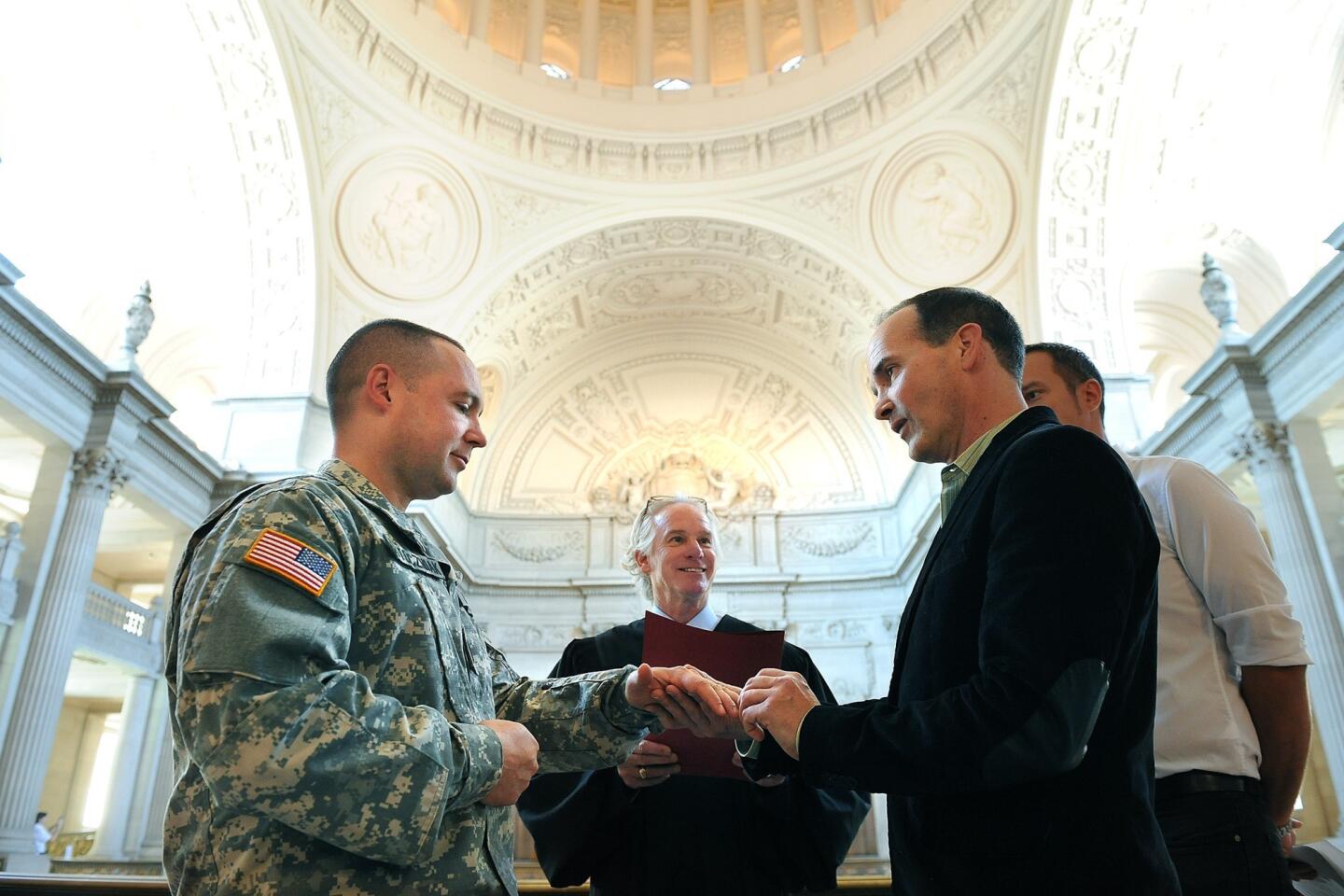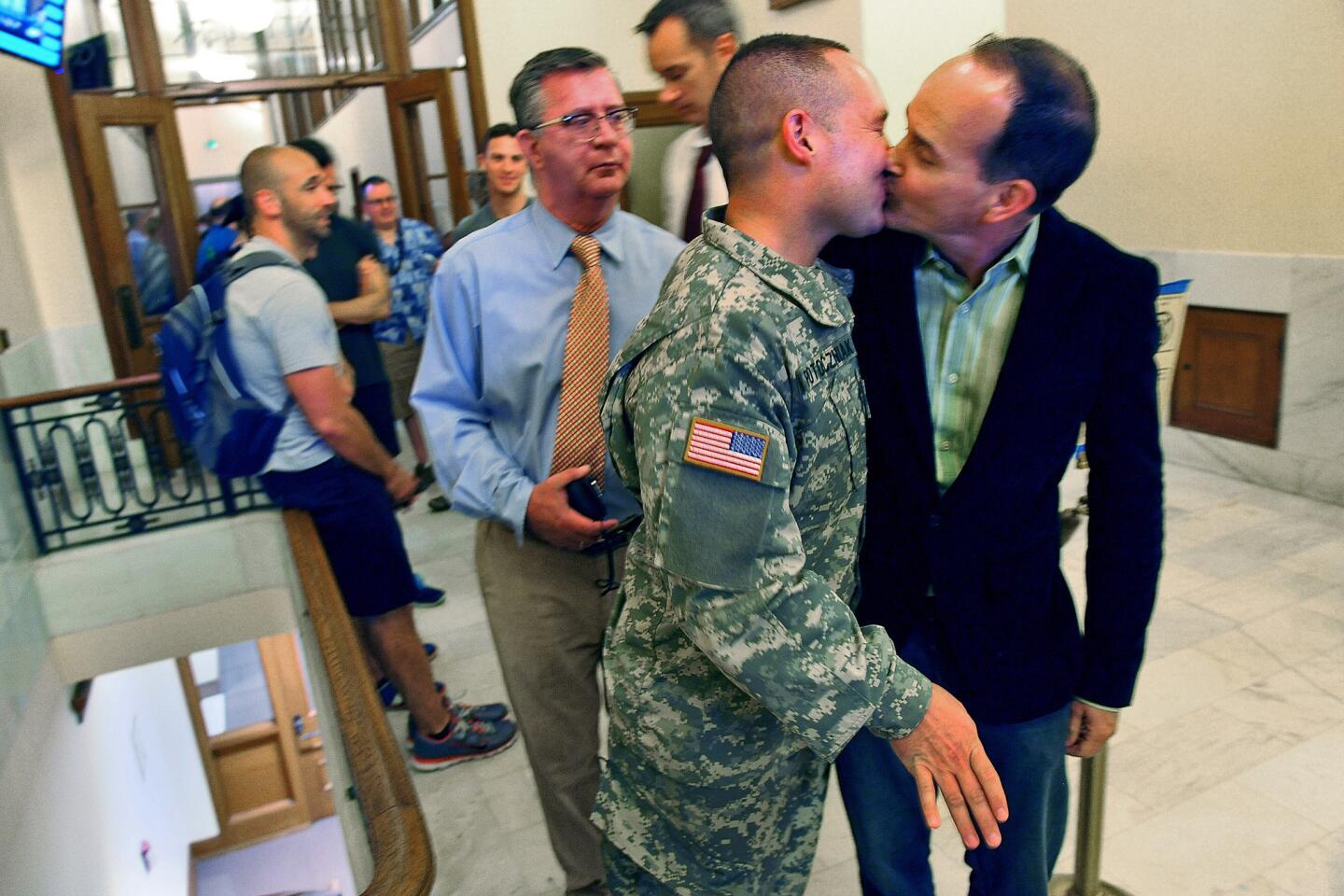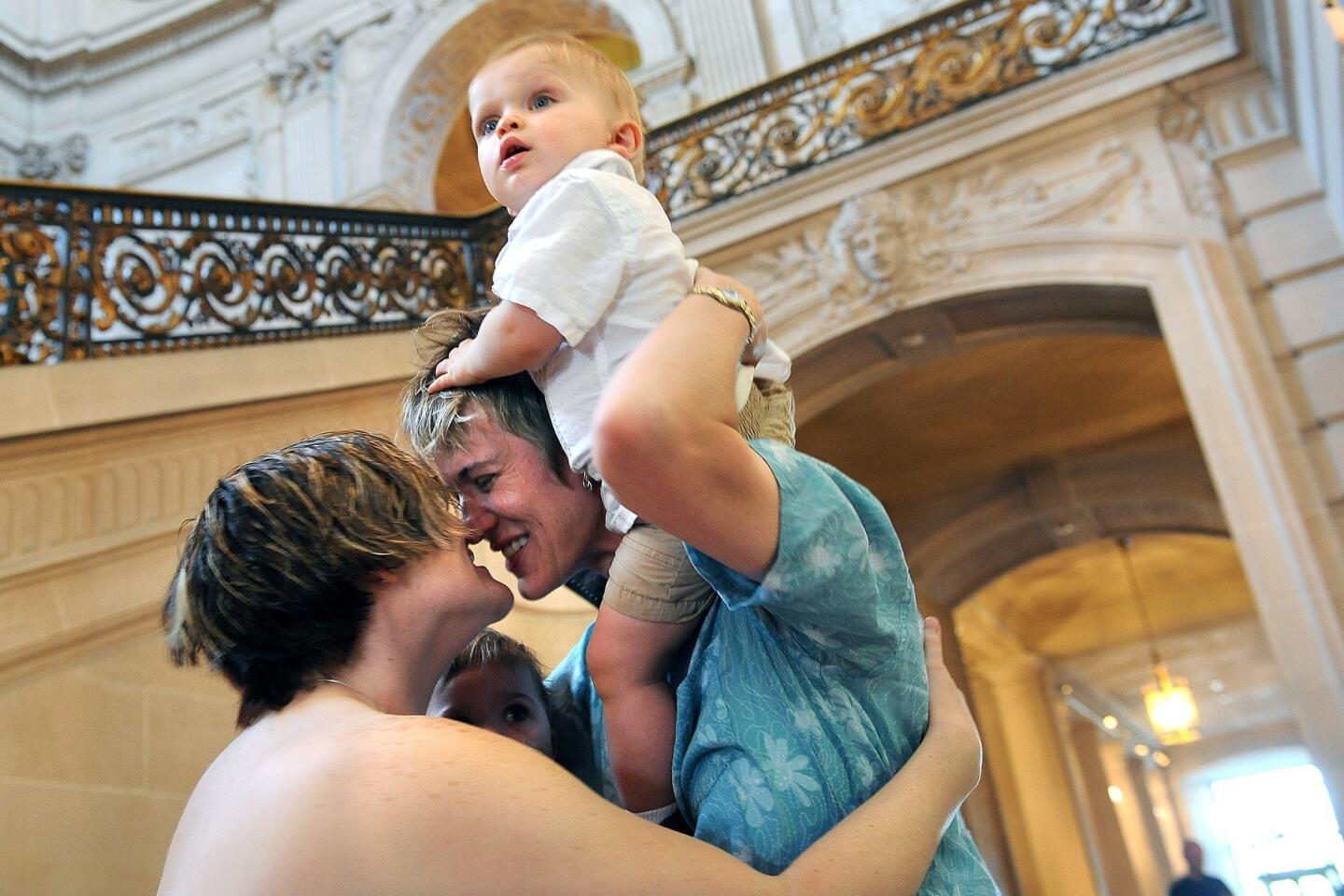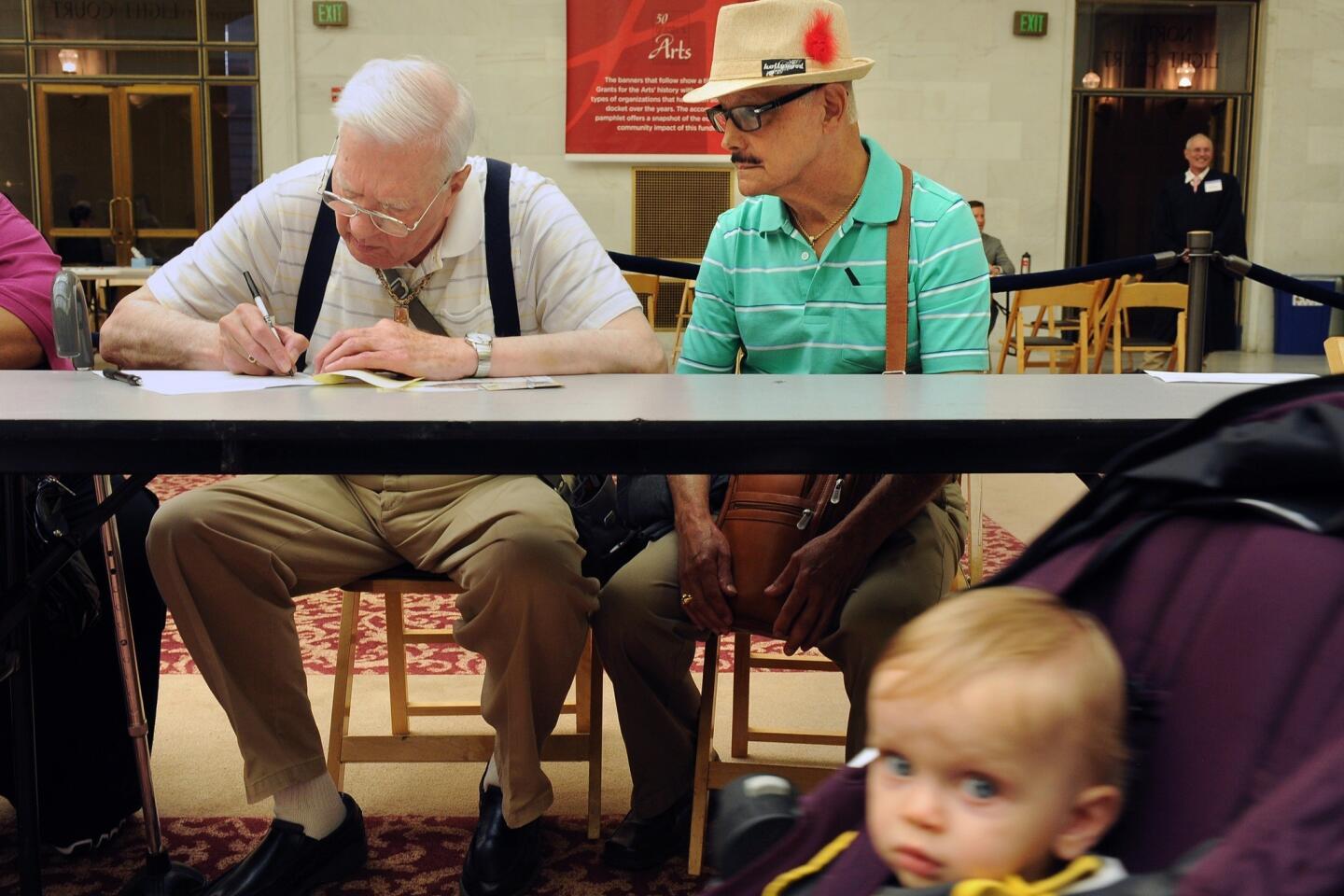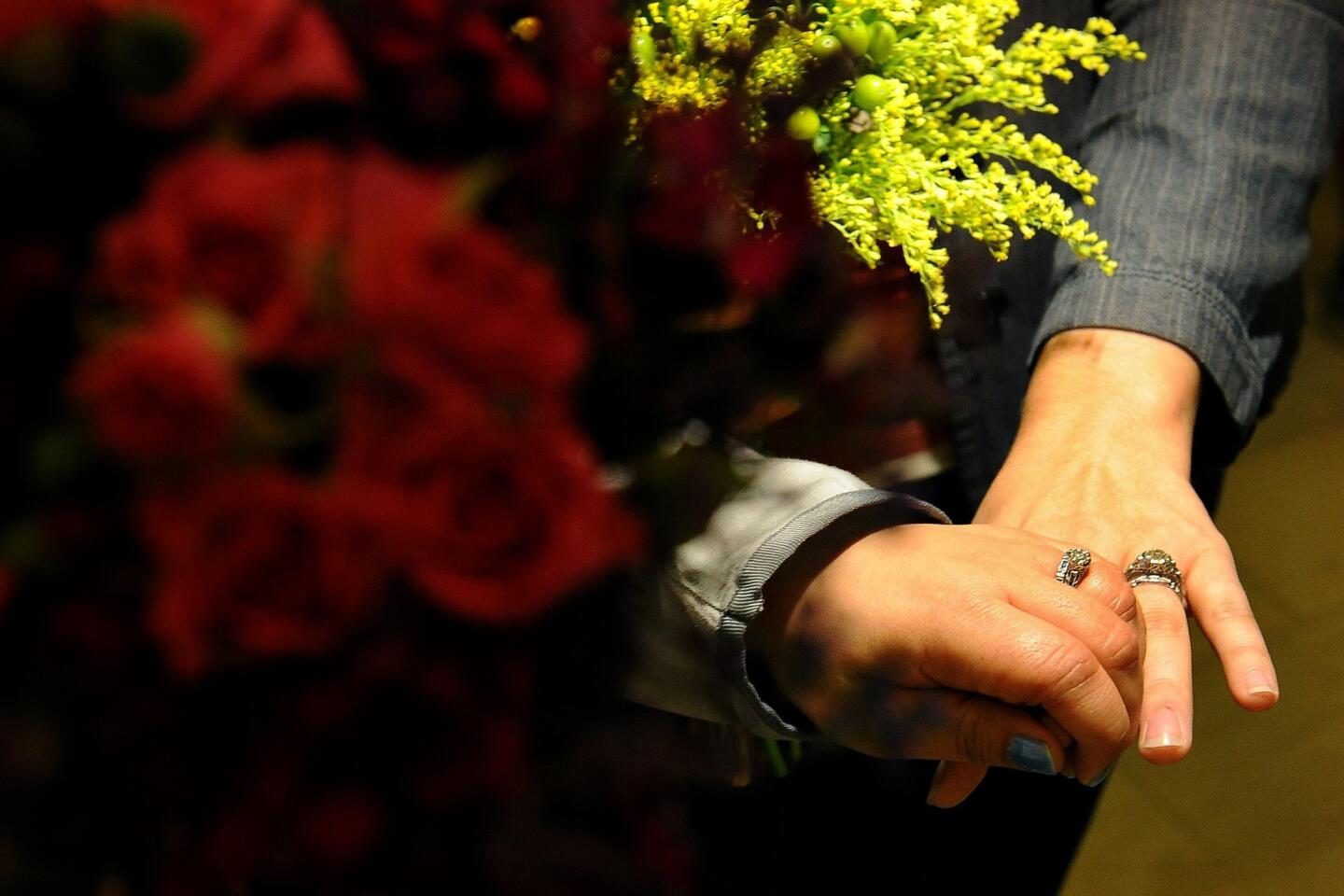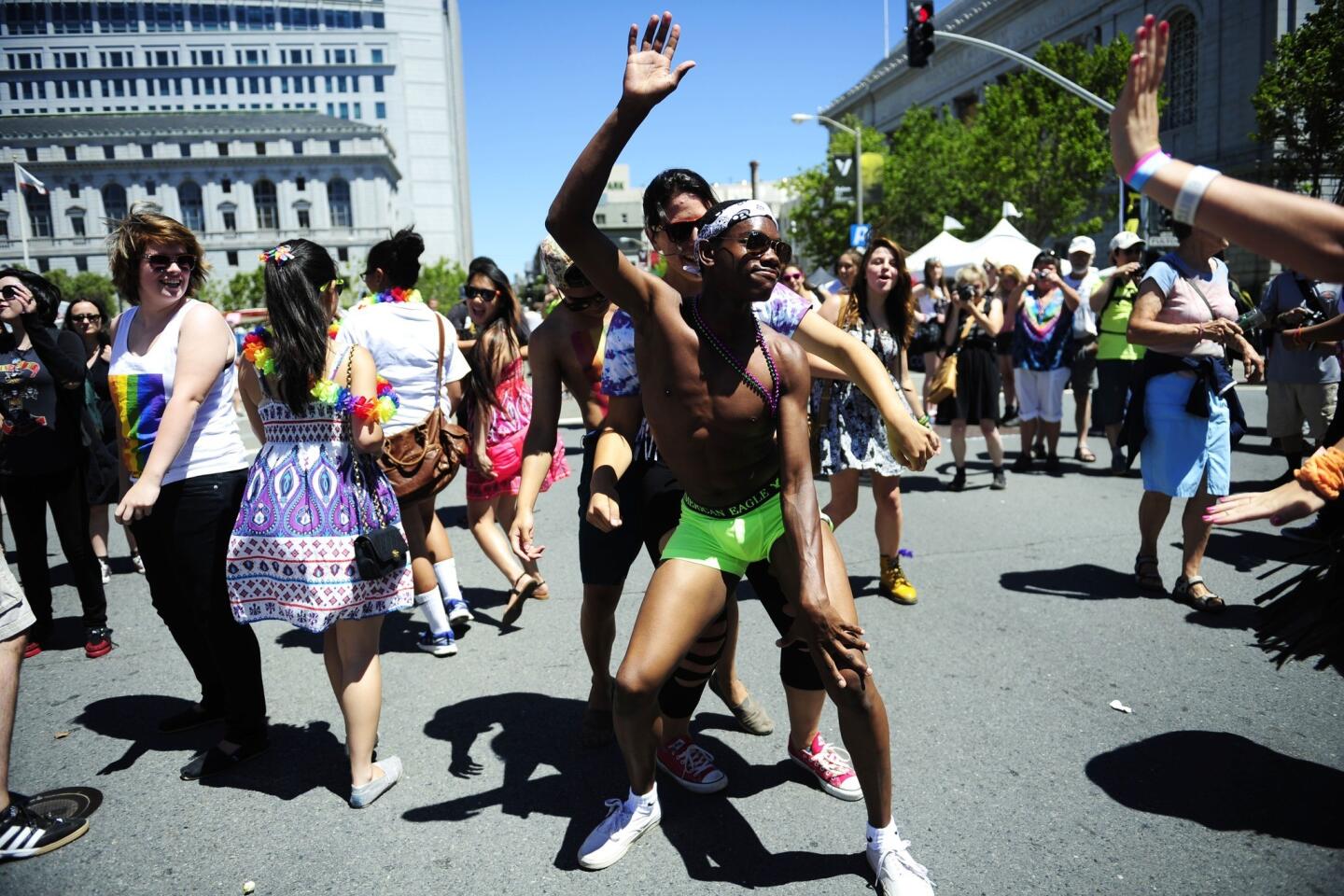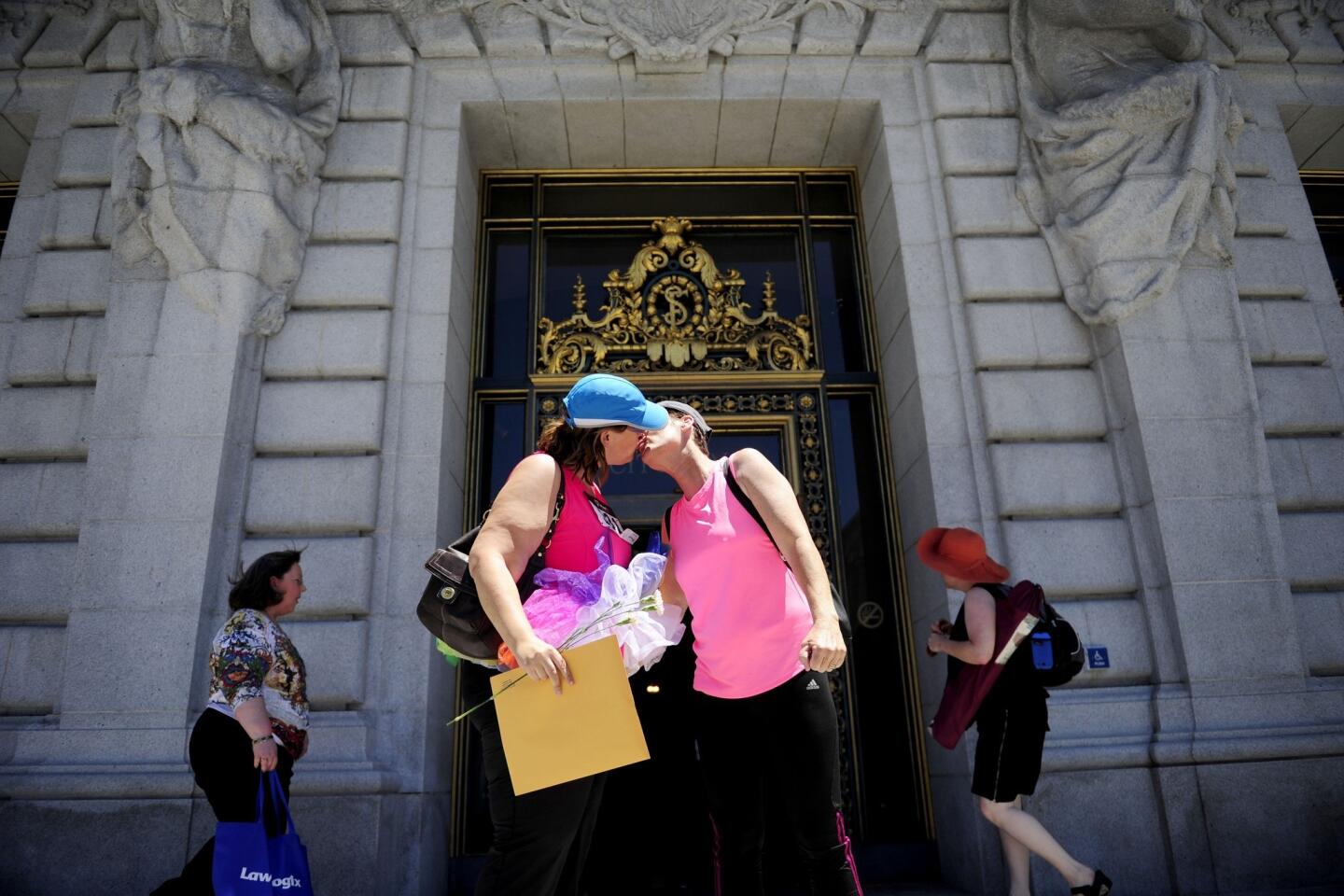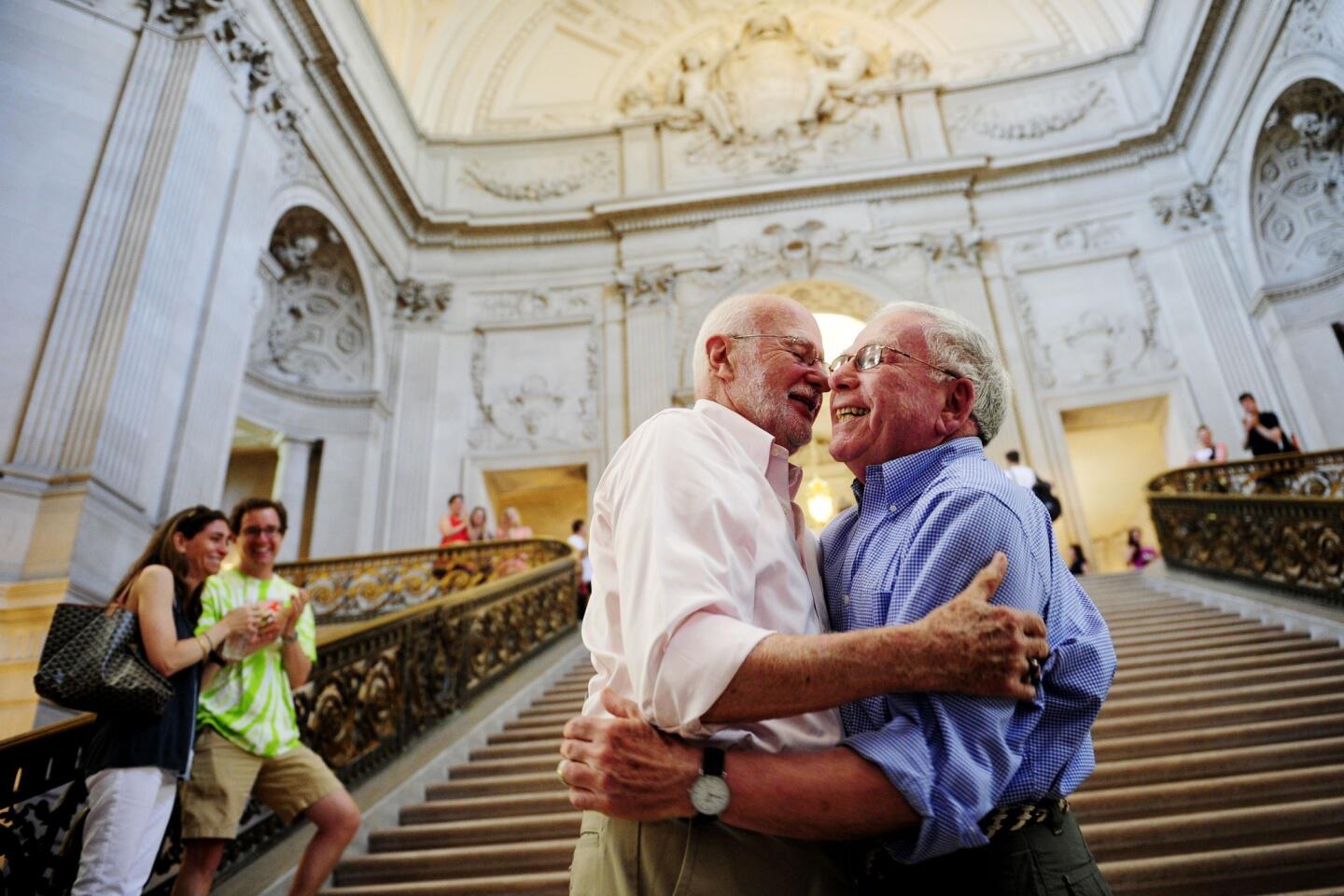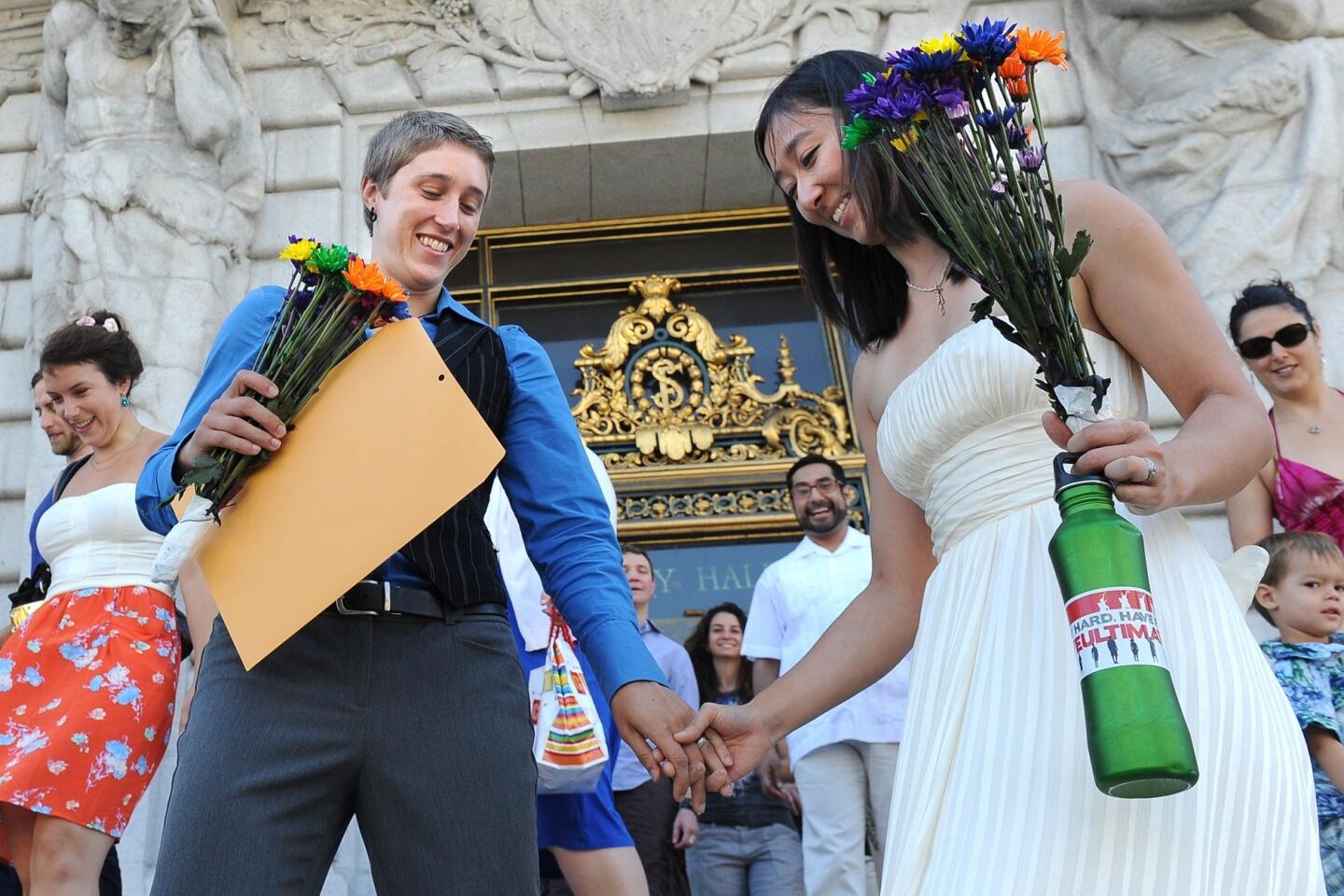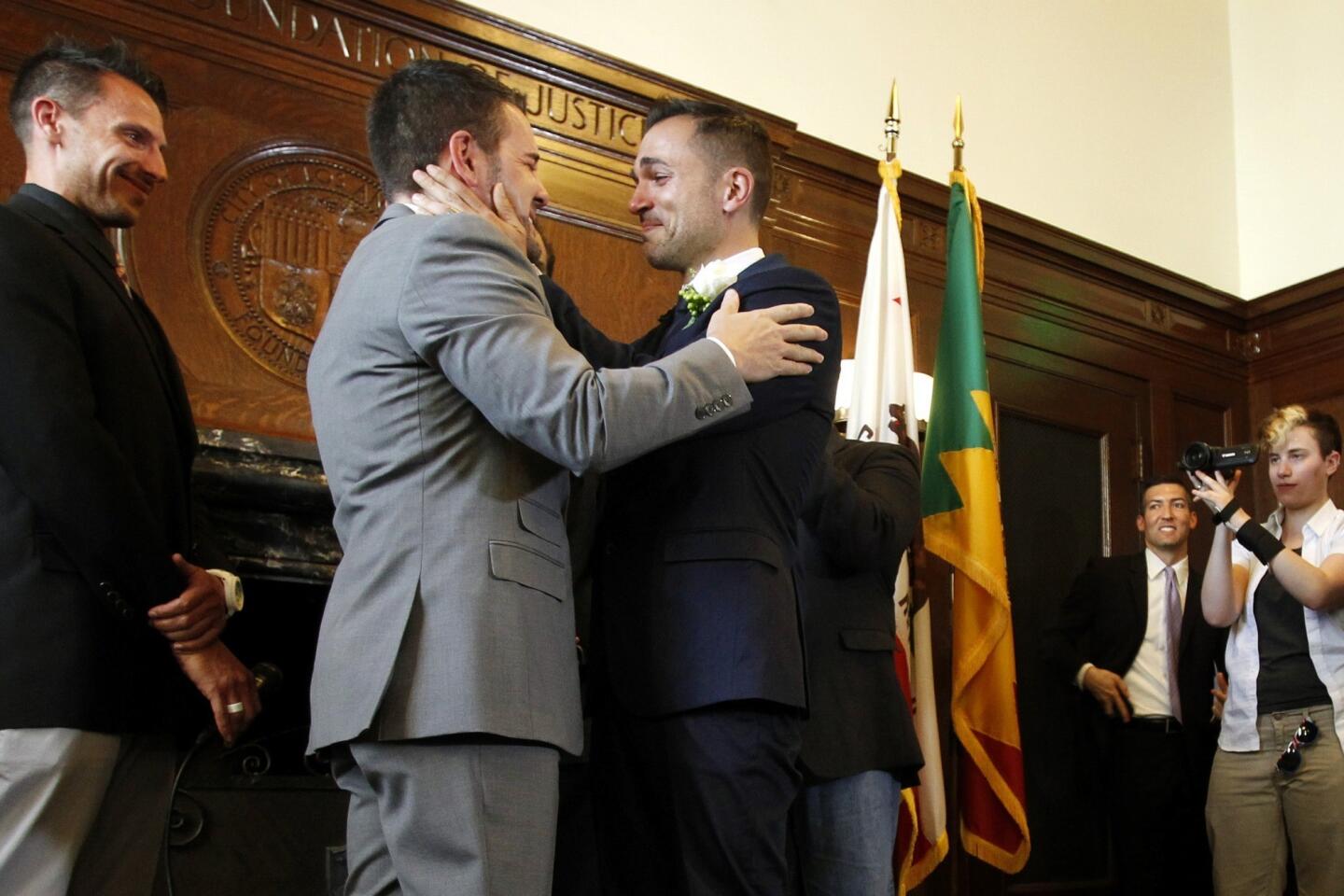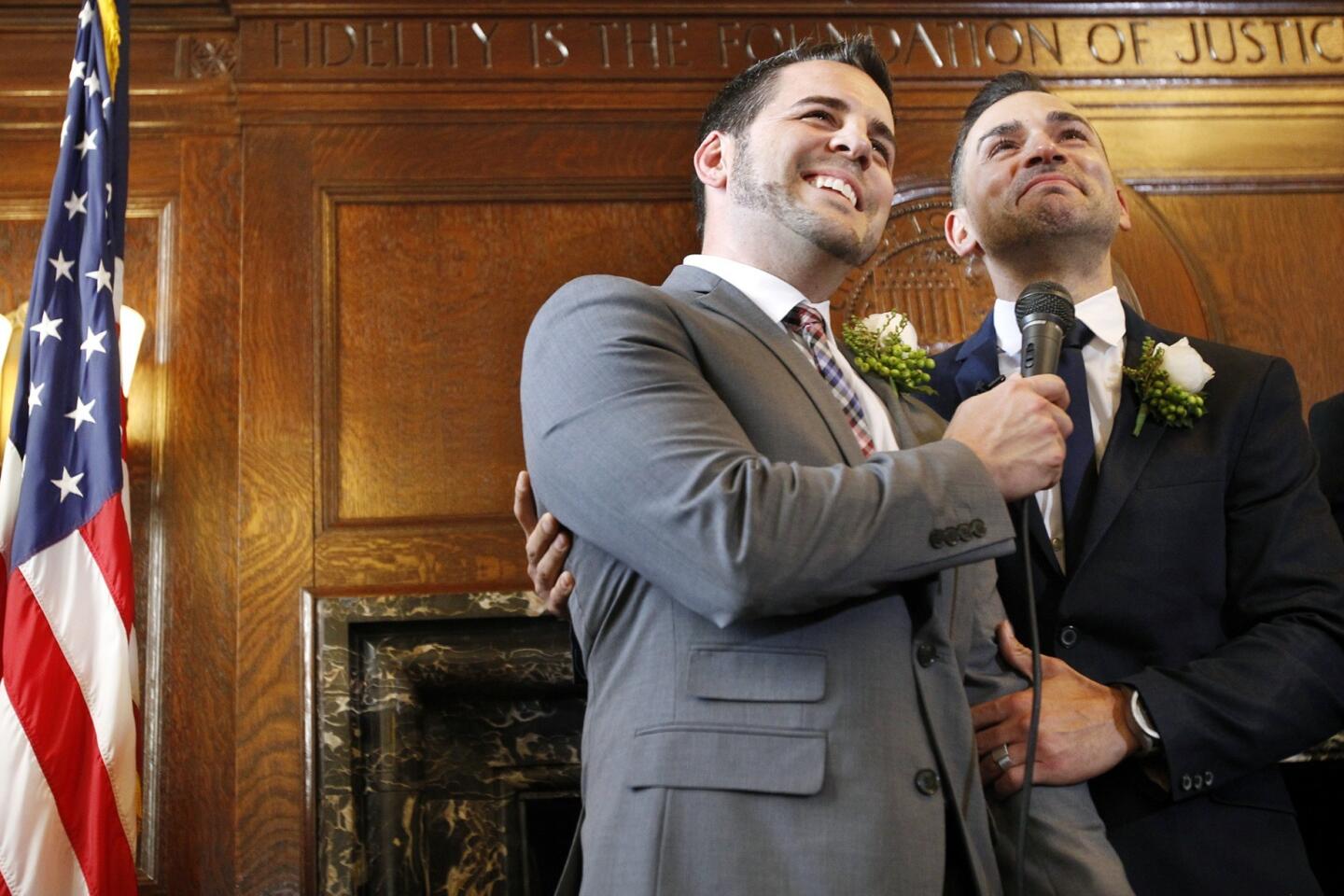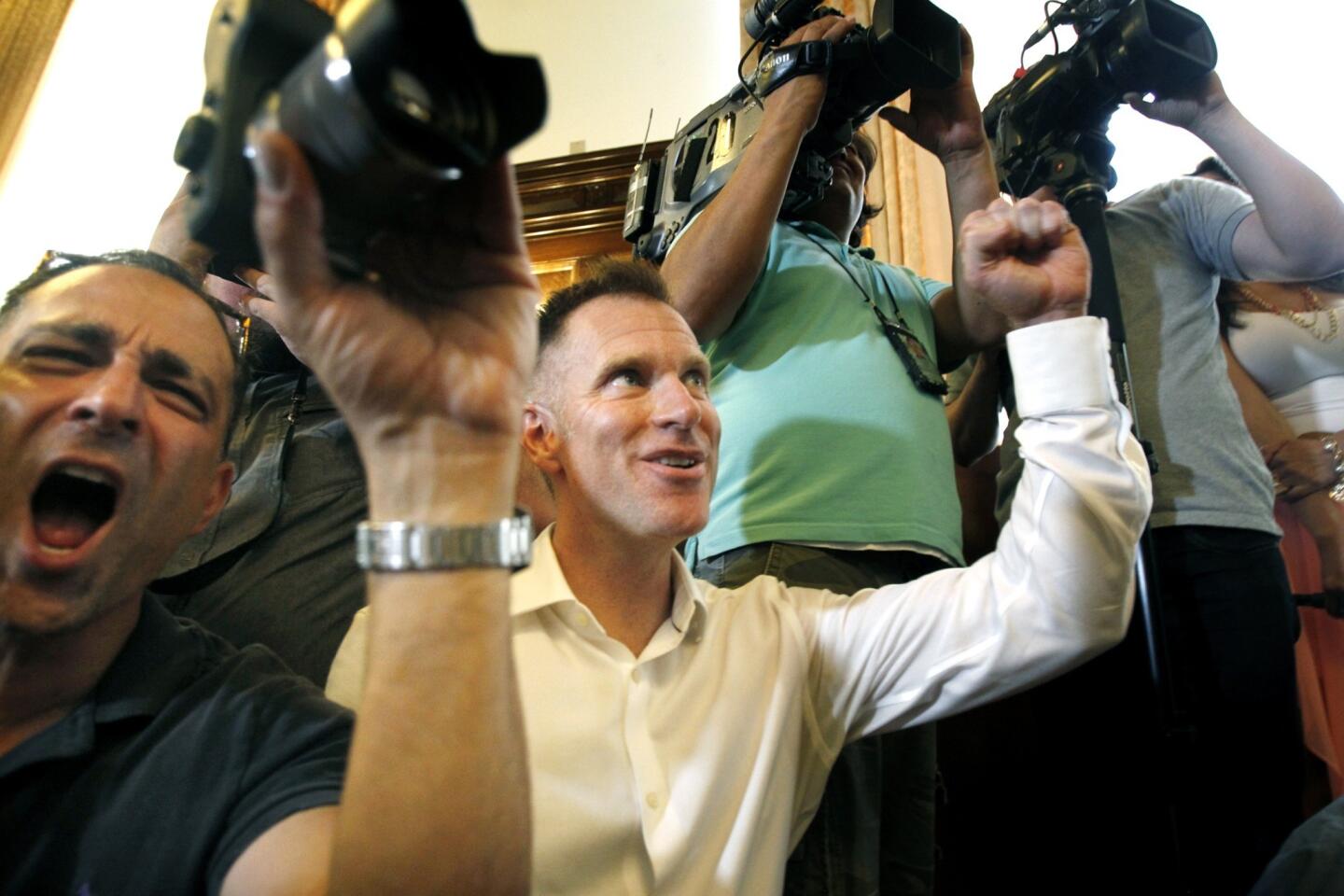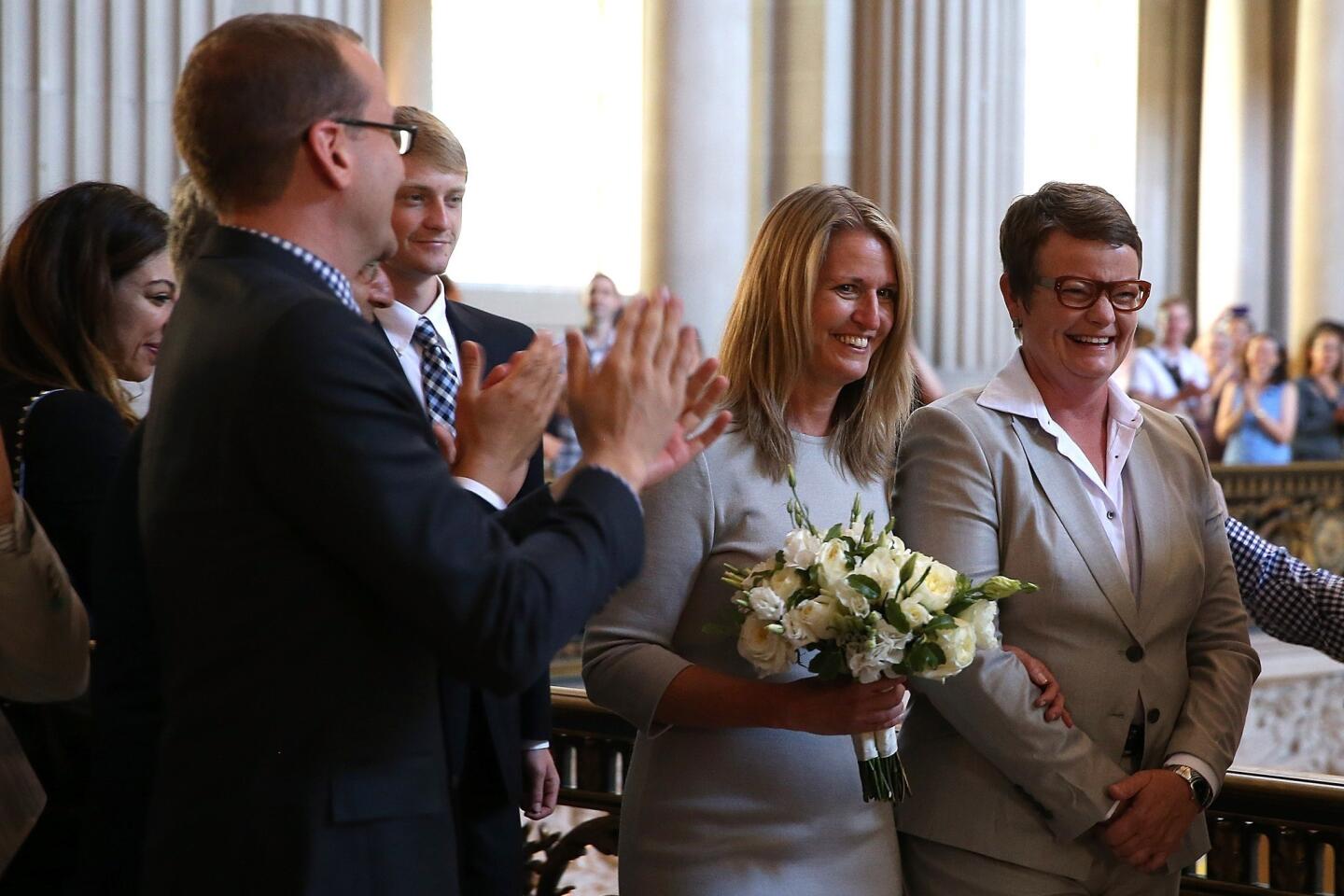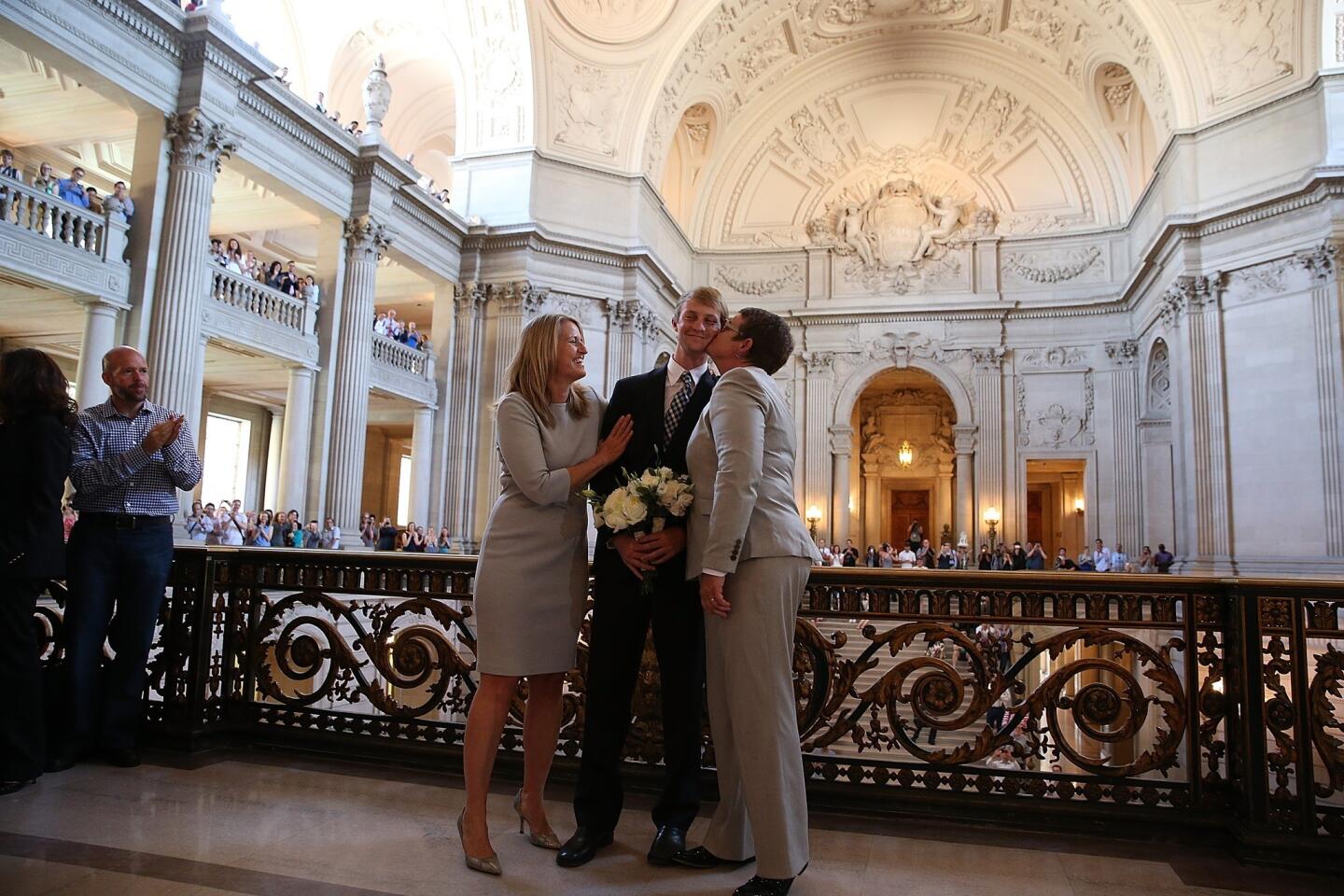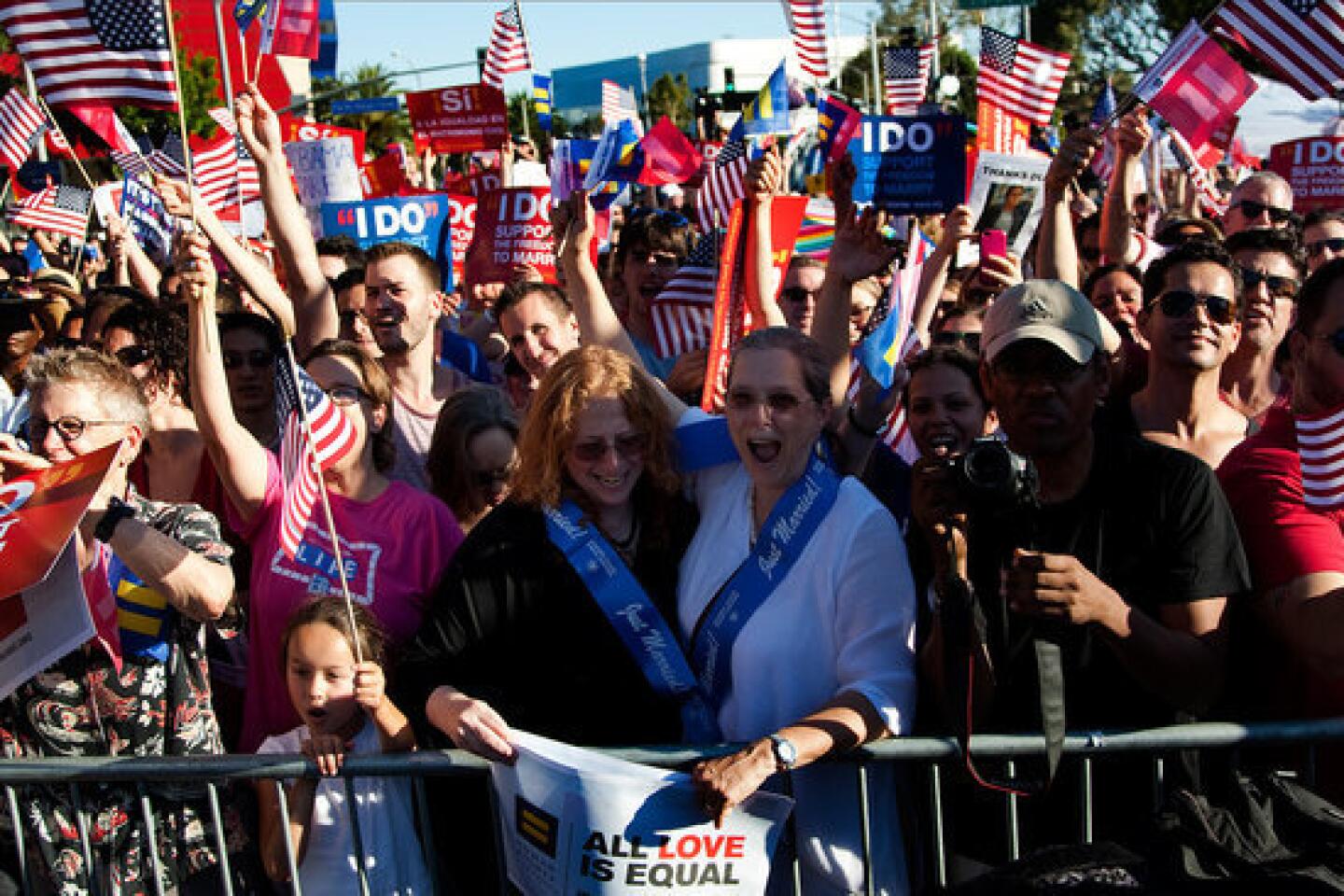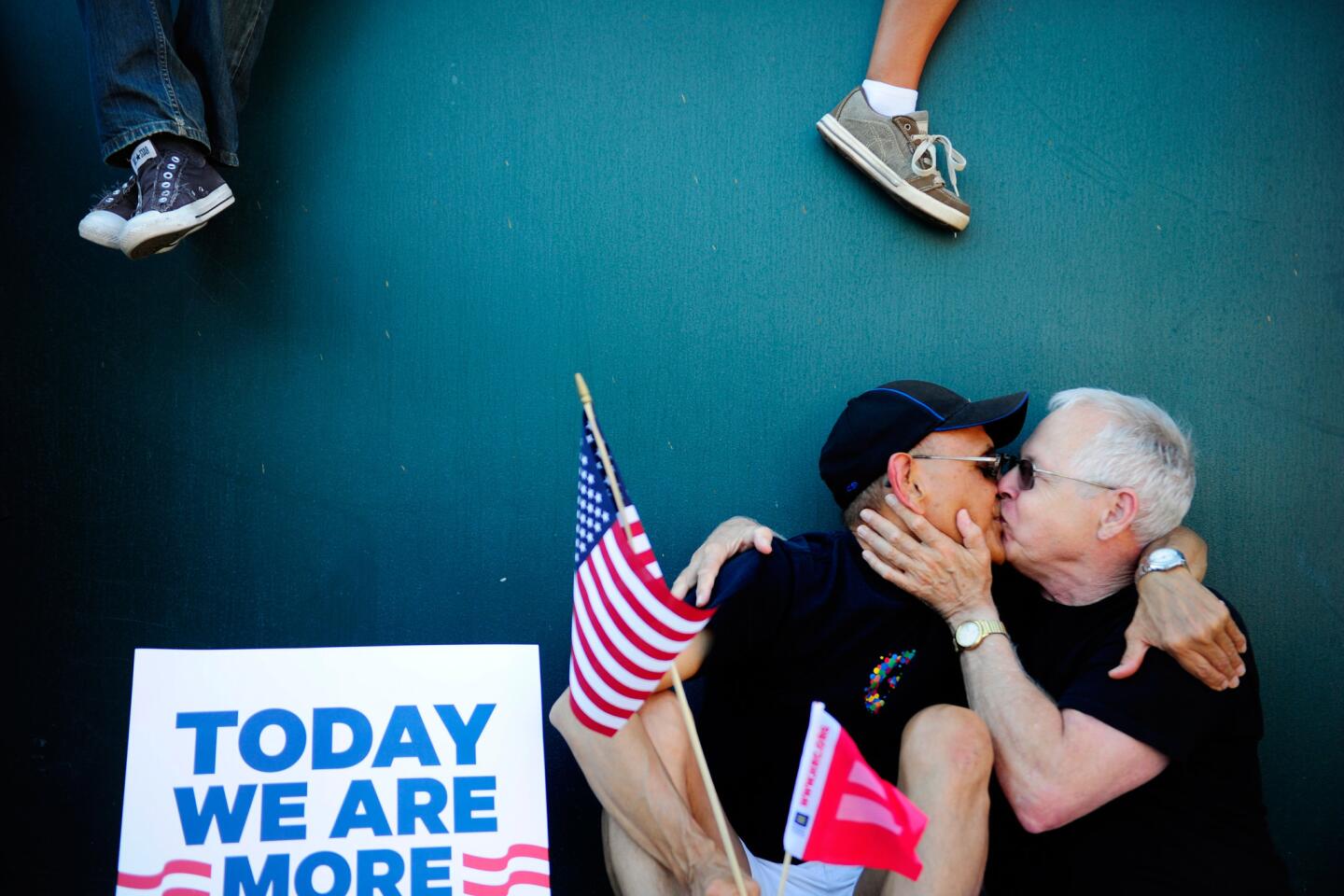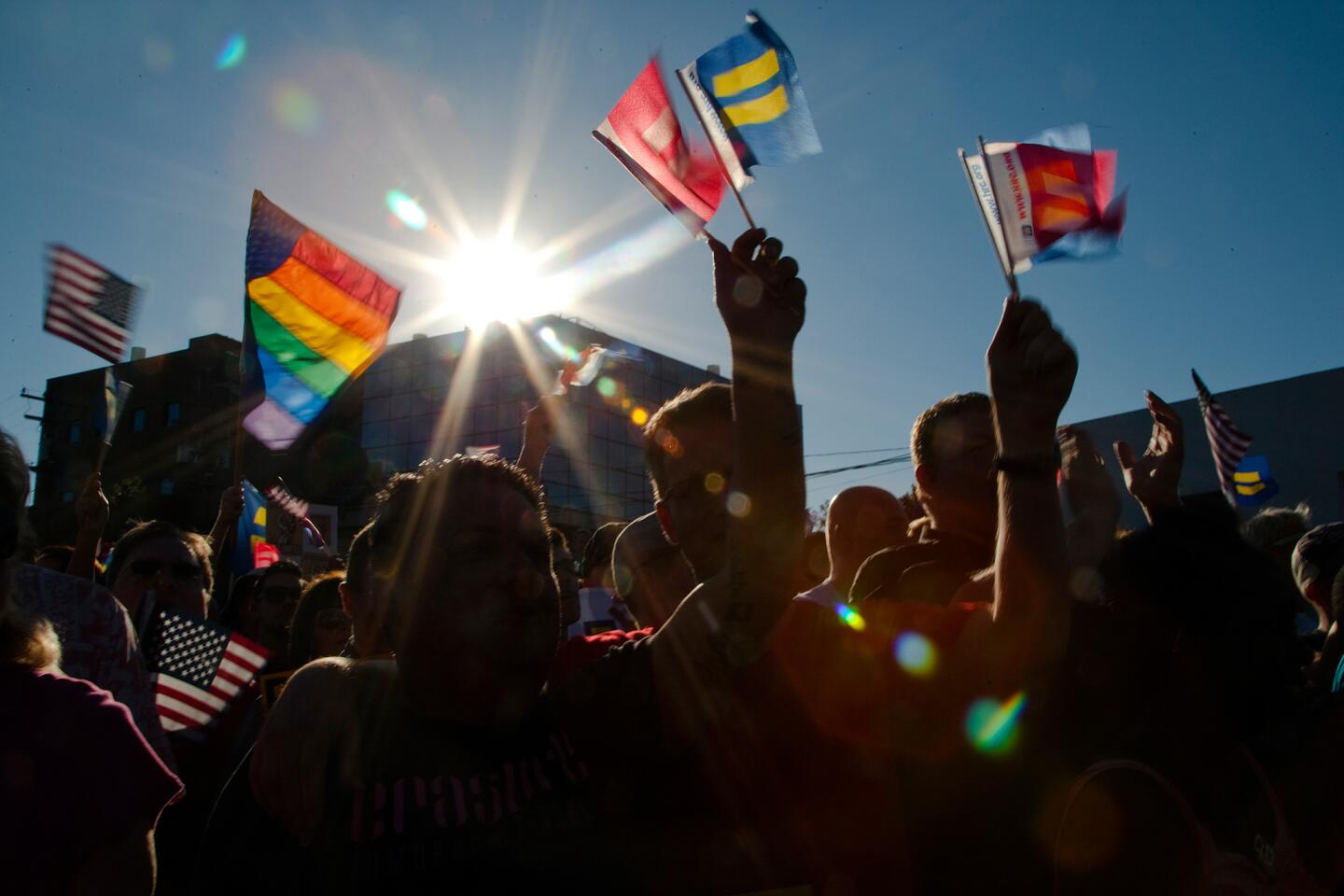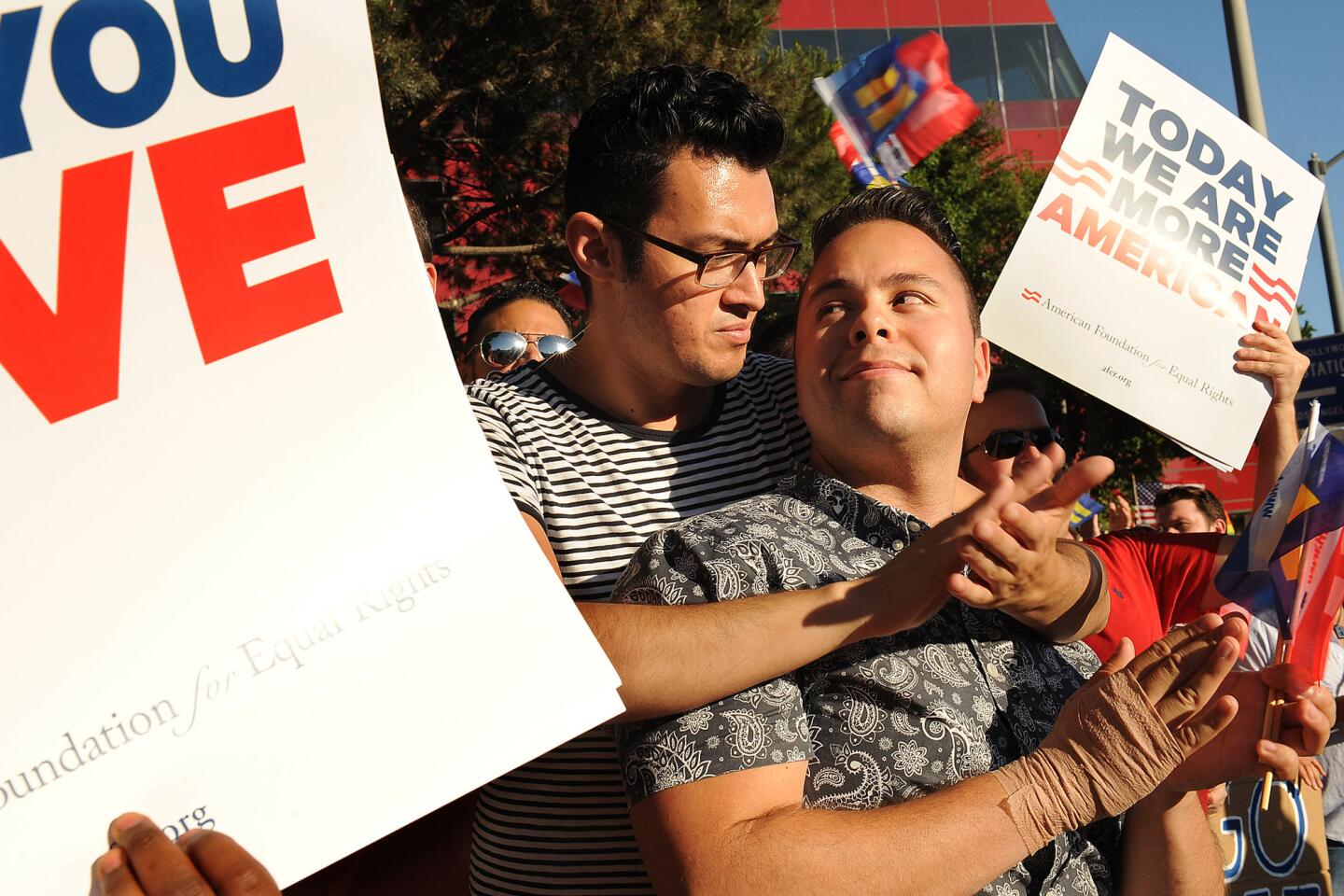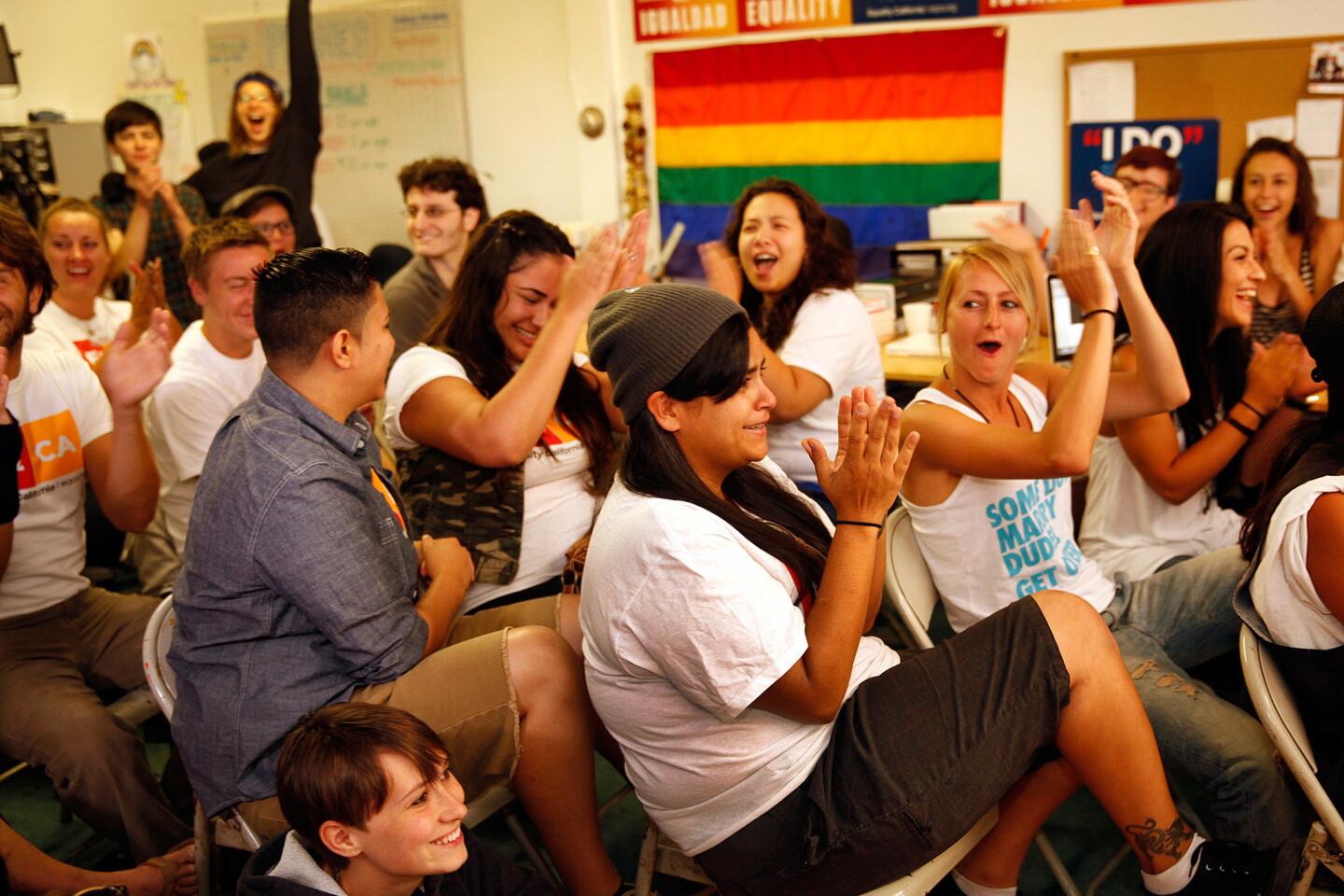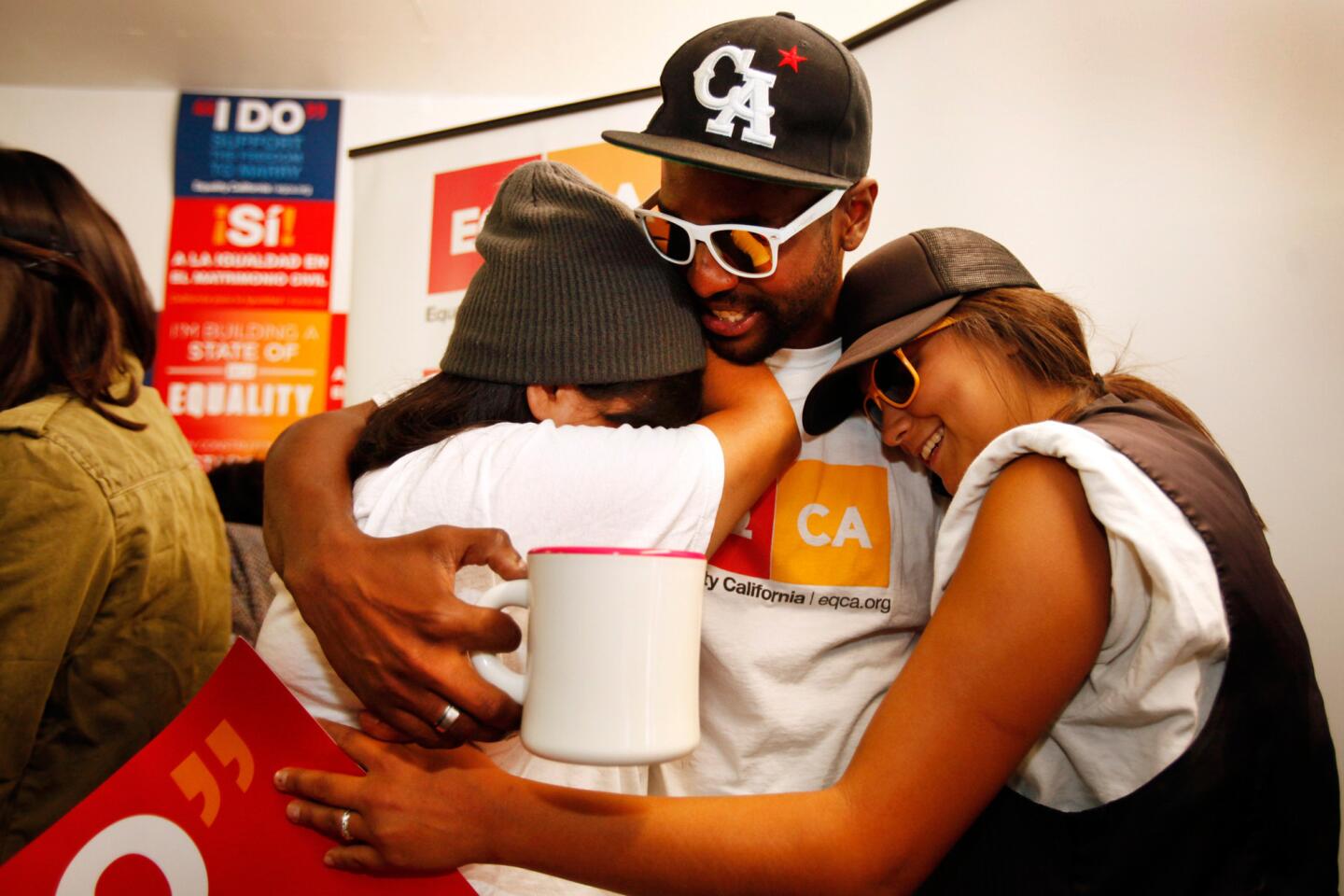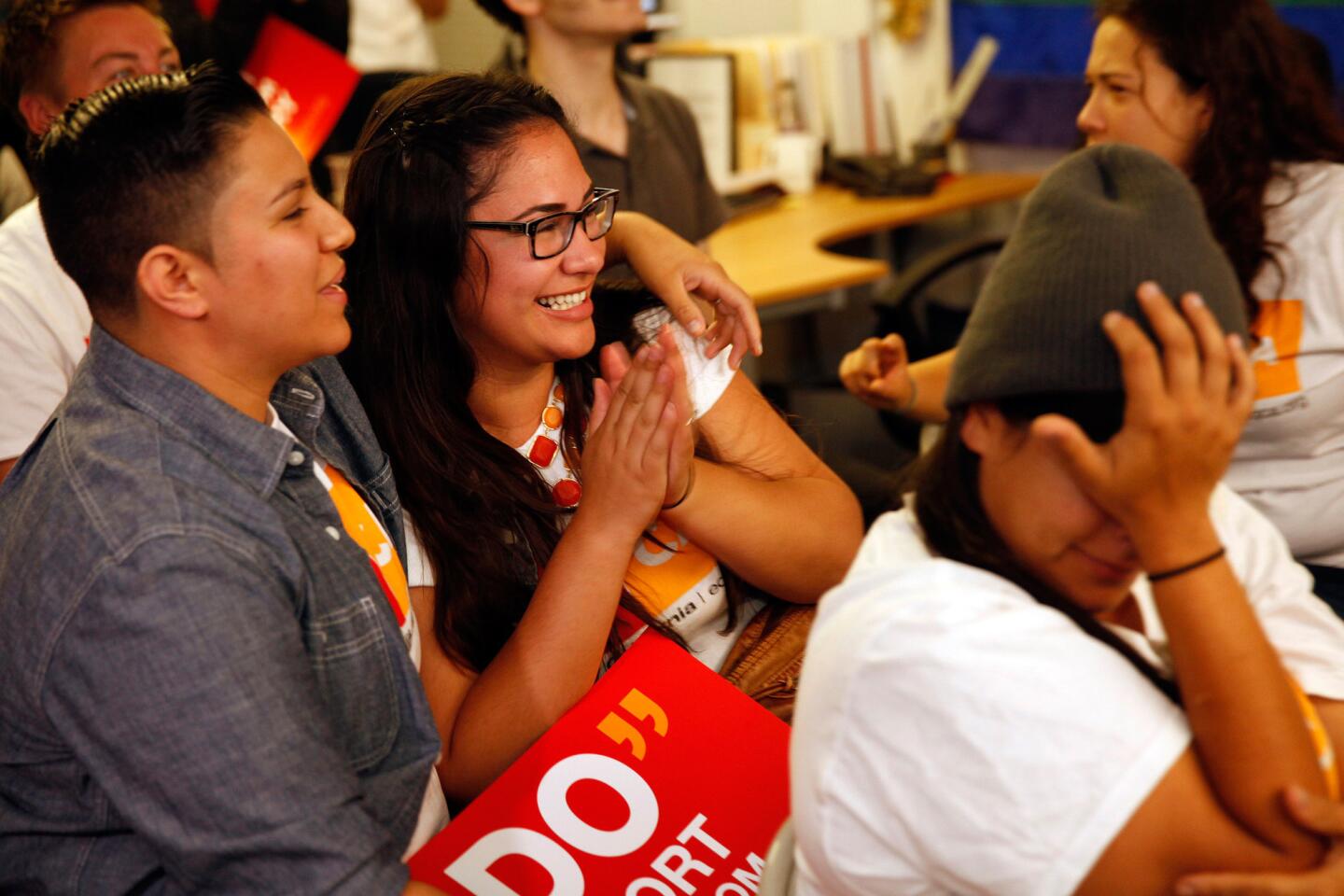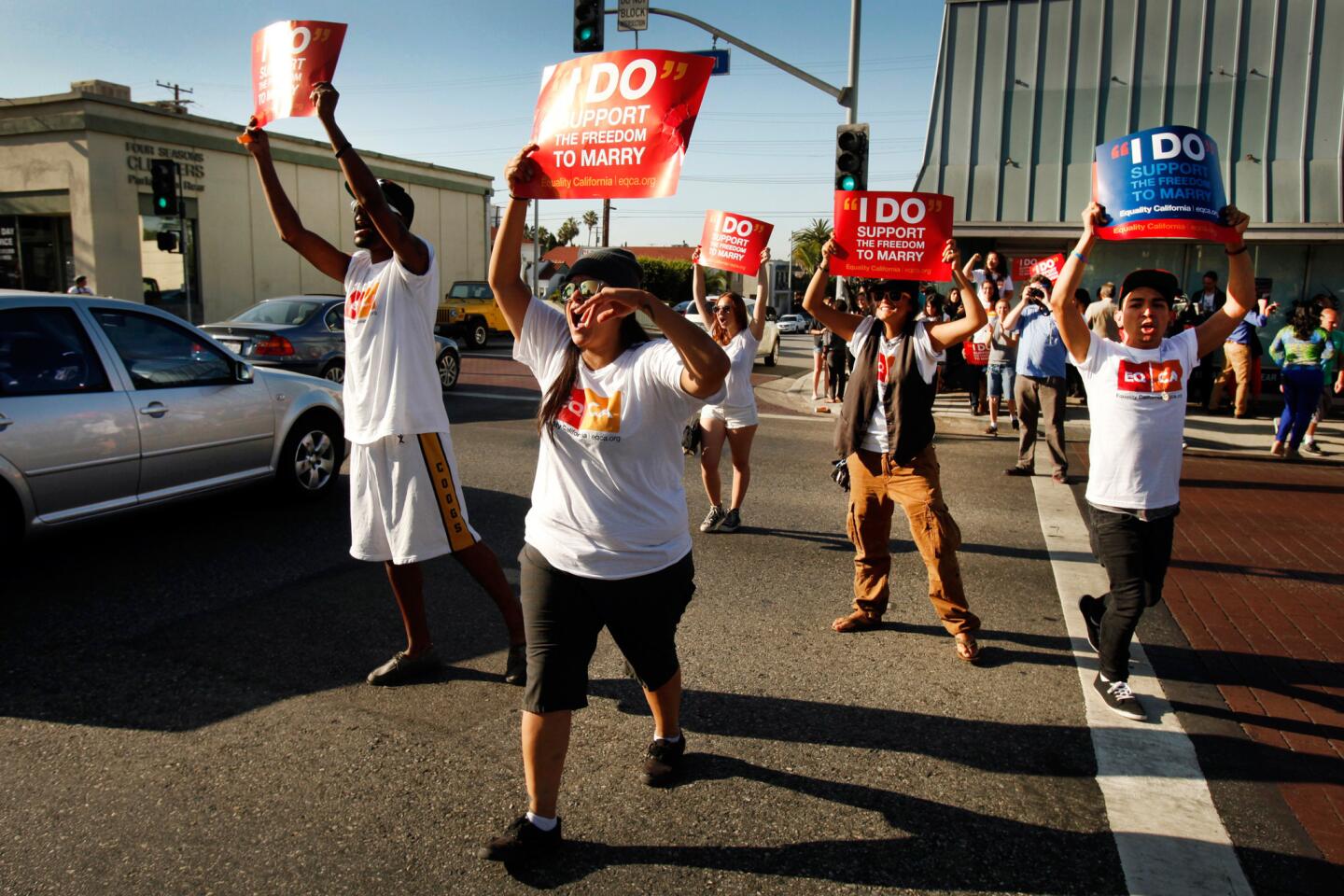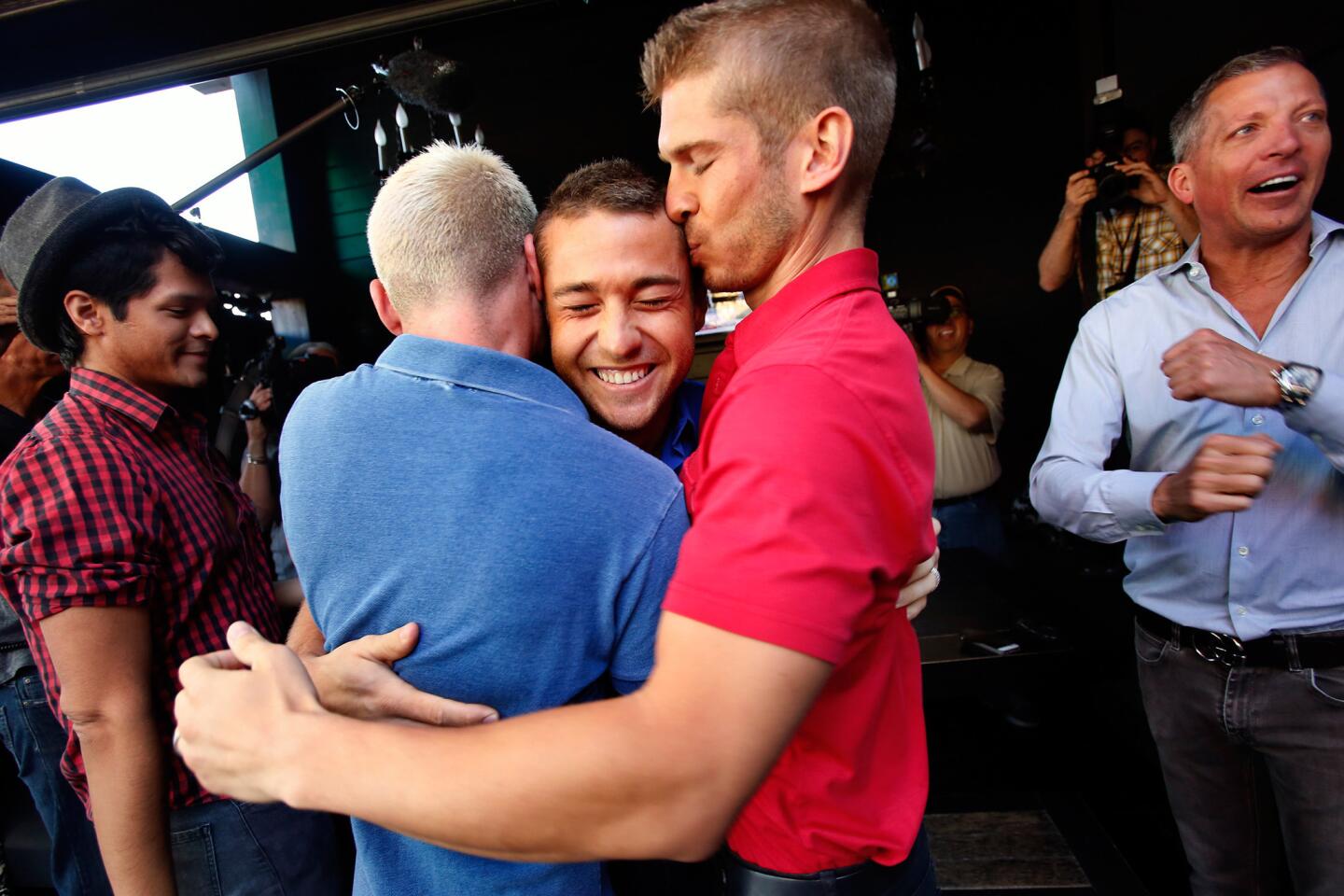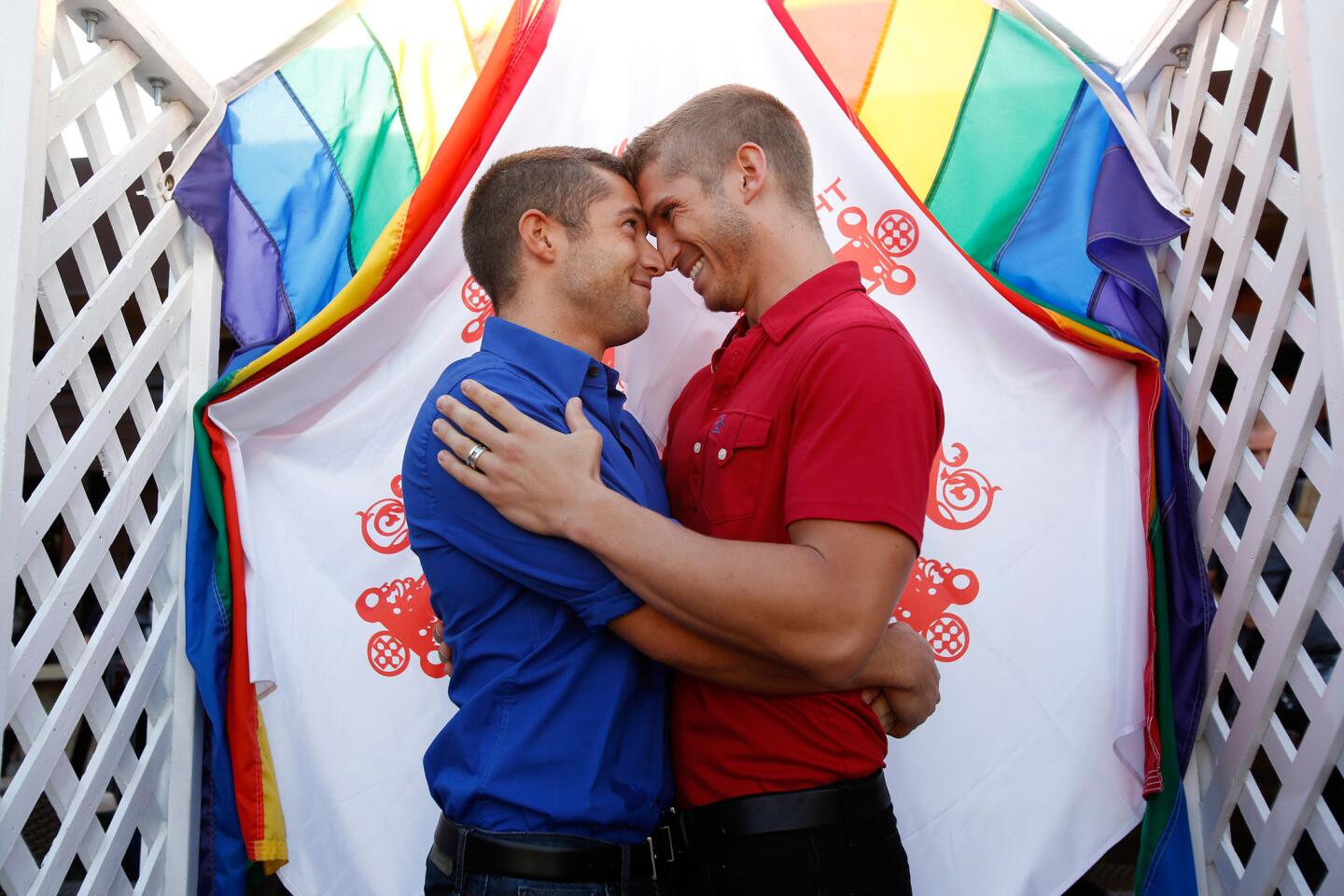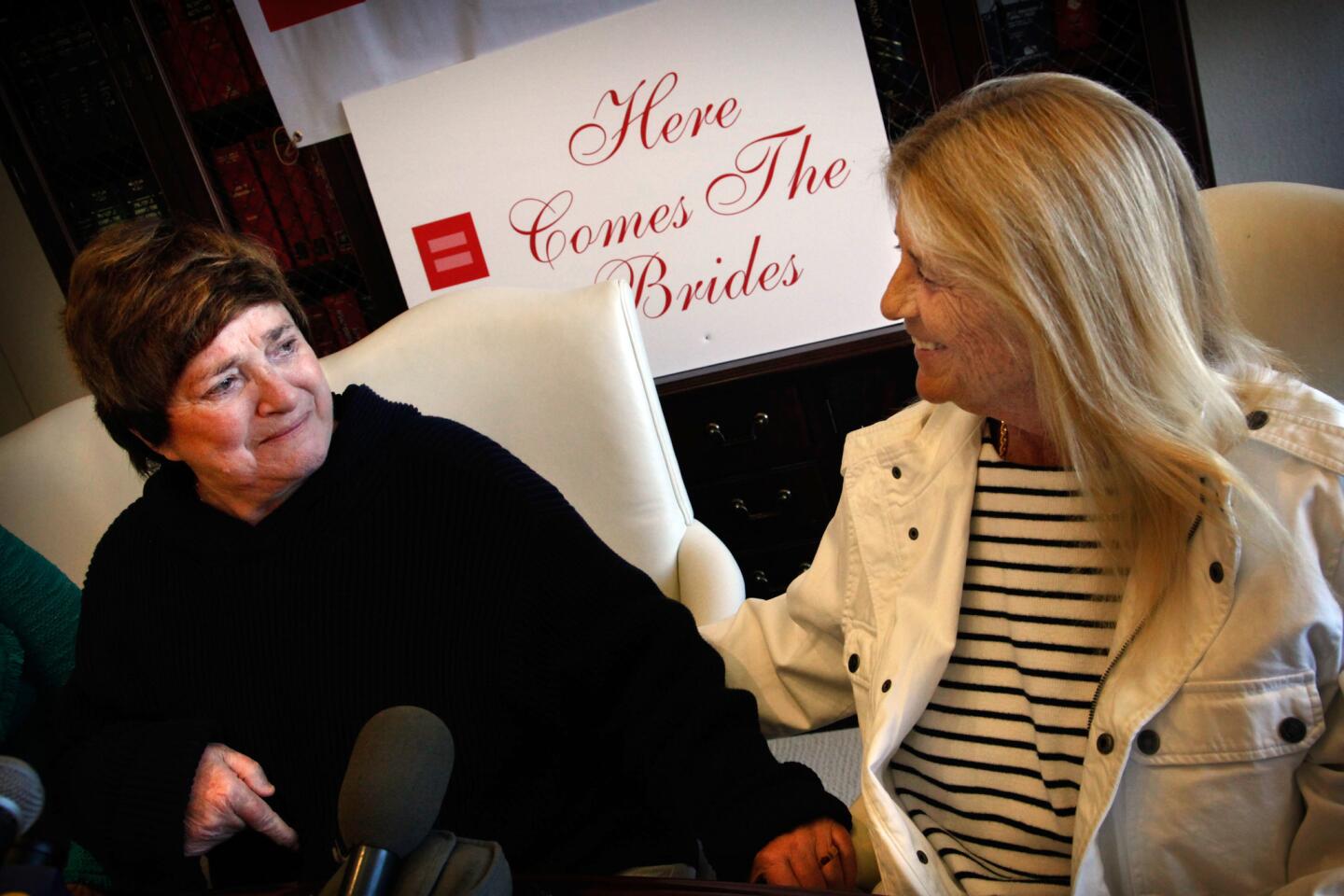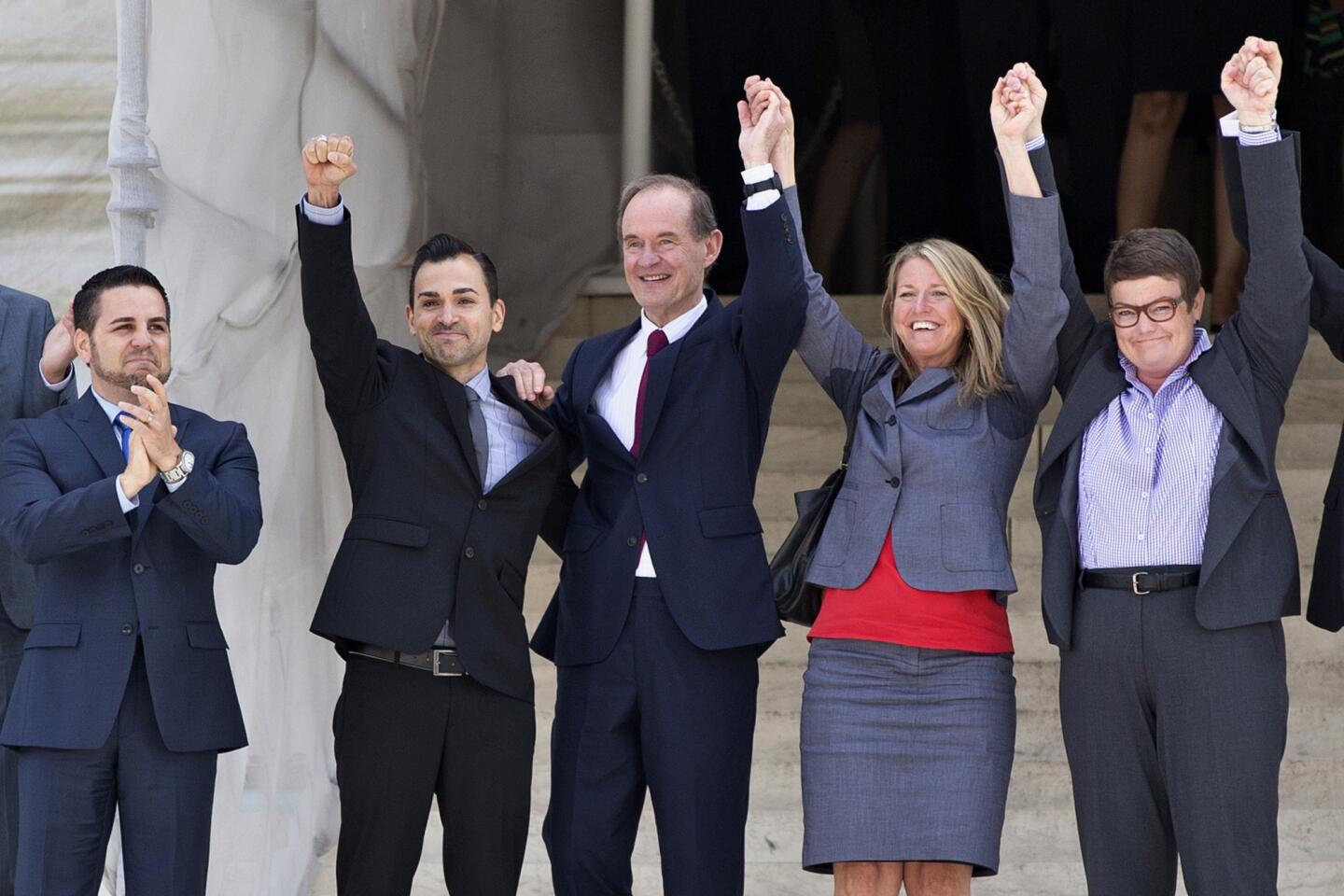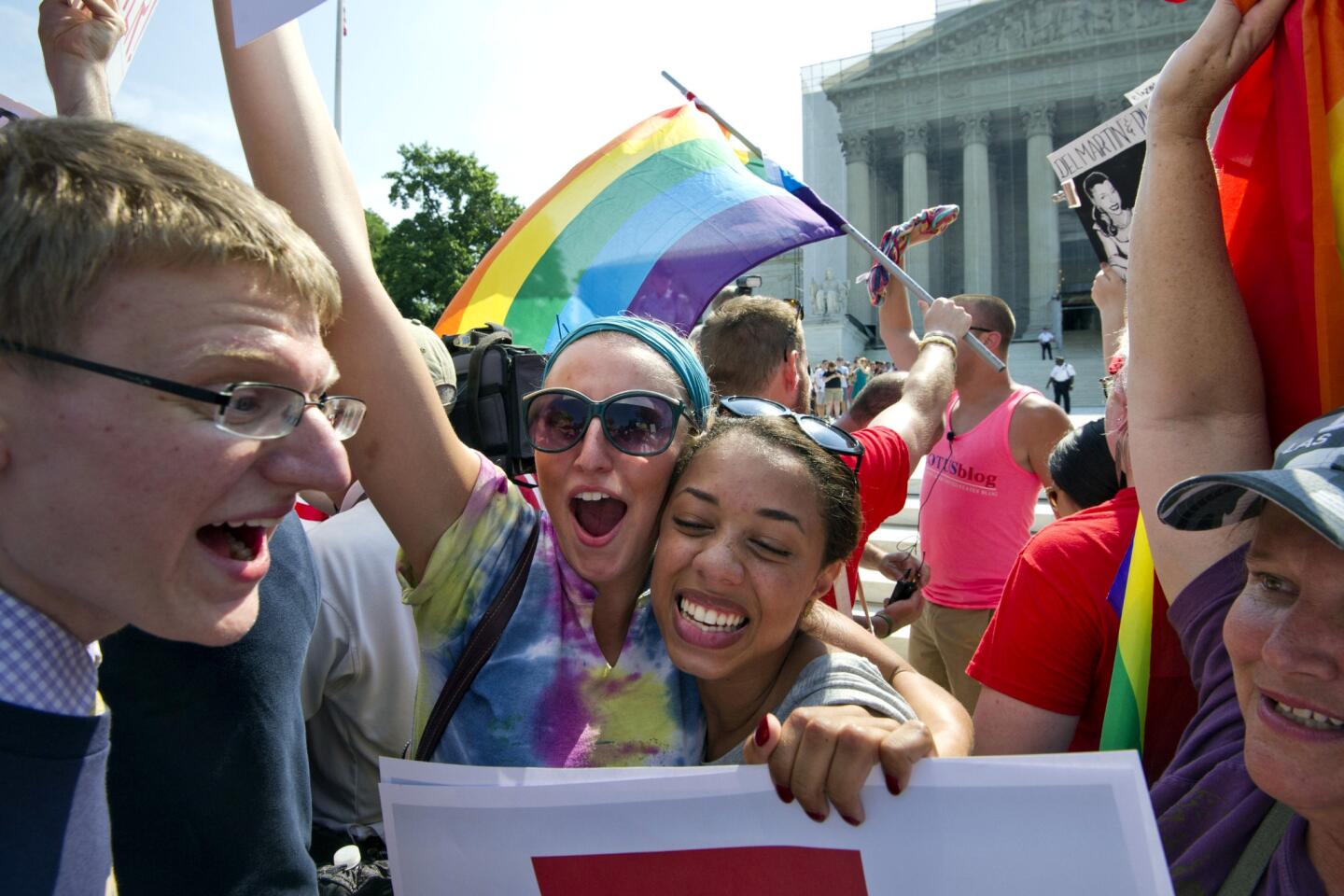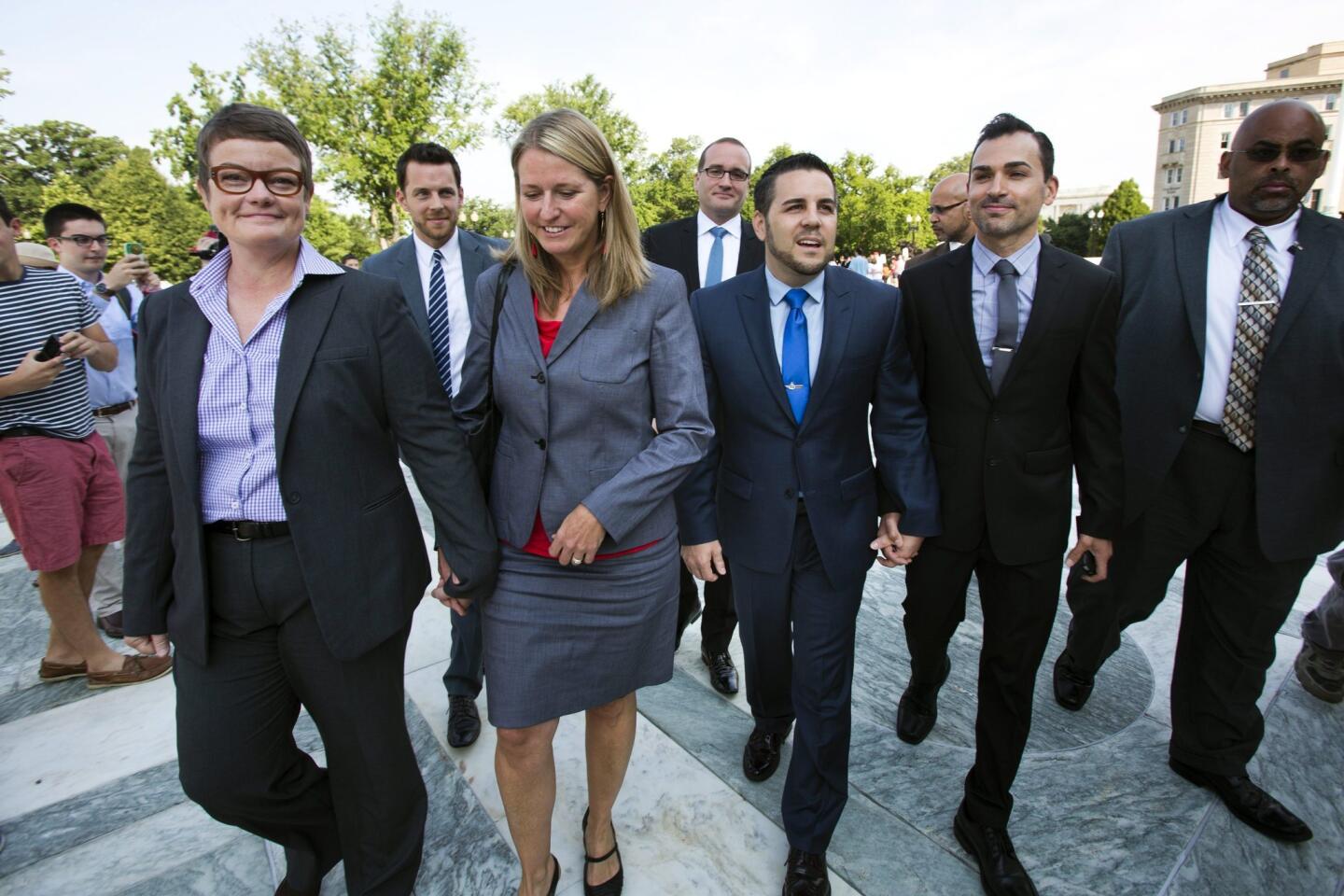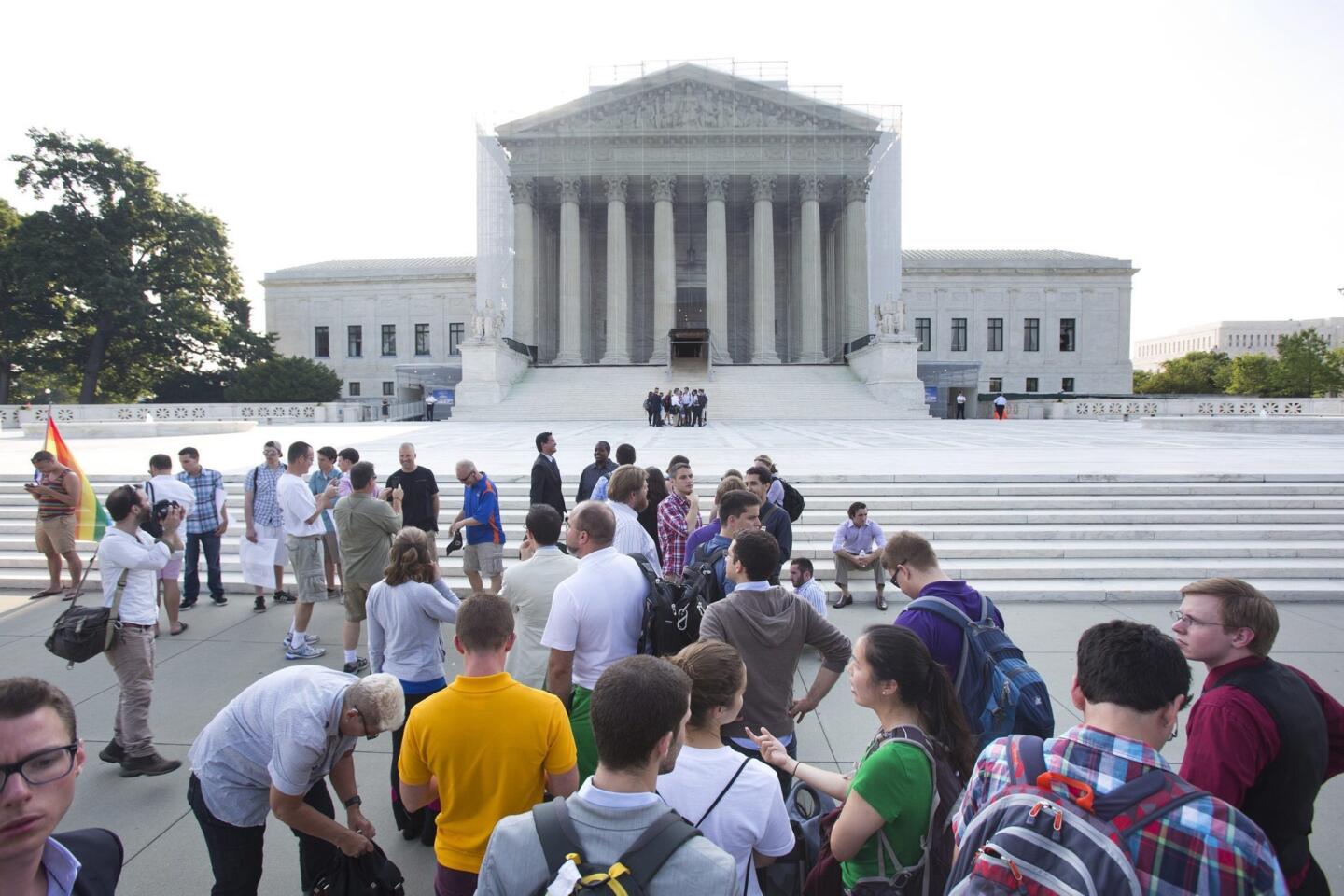In states where gay marriage recently passed: relief
- Share via
They knocked on doors, they made thousands of phone calls, they drove people to the polls, and they helped gay marriage become a reality in six states across the country over the last year.
Now, after the Supreme Court on Wednesday ruled that legally married same-sex couples deserve equal rights to benefits under federal law, these activists in Maine and other states that recently legalized gay marriage say they see further evidence that the country is changing to be more accepting of gay couples.
“I think that what we’ve seen is that every victory that we have had about marriage over the last 30 years, whether it be winning in the legislature in Massachusetts or winning at ballot in Maine, has been building up to moments like this,” said Ian Grady, the spokesman for Equality Maine. “The tide has just so clearly turned and the energy is moving only in one direction.”
In November, voters in Maine passed a referendum supporting same-sex marriage -- only three years after they had voted down a similar measure. Voters in Maryland and Washington state passed measures allowing same-sex marriage. This year, legislatures in Rhode Island, Minnesota and Delaware legalized same-sex marriage.
Documents: Decisions on DOMA, Prop. 8
The Supreme Court’s ruling on the Defense of Marriage Act means that same-sex couples who get married in these states will have access to federal benefits.
It was in Maine that advocates first realized they might be able to reverse a streak at the ballot box in which voters had rejected gay marriage 32 times. By sending out volunteers to the countryside and the city streets to have in-depth conversations with voters, Mainers United for Marriage was able to get people in the state talking about gay marriage, and thinking about how legalizing it might affect people they knew. Some voters they talked to changed their minds about gay marriage, and the November referendum passed 53% to 47%.
“What we found in Maine was that a lot of Mainers were willing to have conversations about this issue and their fears about it, and a lot of times we were able to assuage their fears,” Grady said.
Even in states without groups reaching out to voters, people are more willing to have these conversations around the dinner table, Grady said, as they meet more gay couples and realize how people can be personally affected by laws prohibiting same-sex couples from marrying.
Amelia Nugent, 24, was one of the volunteers reaching out to people in Maine. After the November election, she worked in Rhode Island with religious groups to reach out to legislators there, where even Republicans supported the bill. She said the DOMA ruling affirmed what she had been talking to people about -- that gay couples should be treated equally.
“For someone who works in this movement, it’s huge,” she said. “Just having the highest court in the land affirm that there are equal protections to all of our citizens.”
Full coverage: Prop. 8 and DOMA
For Nugent, who is gay, the ruling also gives her some personal assurances.
“It’s huge security knowing that when I get married, I won’t have to worry about things like Social Security,” she said.
Of course, there are things the Supreme Court ruling didn’t do. It didn’t provide a sweeping ruling on Prop. 8. Instead, the court sent the case back to California, which means that it is still up to states to decide whether to allow gay marriage. In many states that recently legalized same-sex marriage, that is a disappointment.
“This ruling is a powerful step forward for those who live in states like Maryland. But the court’s decisions make clear that there is still more work to do as a nation to achieve greater respect for the equal rights and human dignity of all,” said Maryland Gov. Martin O’Malley in a statement. In November, 52% of Maryland voters supported same-sex marriage.
The next statewide battles will likely take place in Oregon, where a 2014 election will seek to overturn a constitutional ban on gay marriage, and in Illinois.
Owen Hill, 24, who also volunteered on the Maine campaign, said he hopes the Supreme Court decision will motivate other states to follow Maine’s lead.
“I think it’s not everything, obviously; DOMA still exists in half the states in the country; there’s still a lot to fight for,” he said. “But another incredibly important voice has been added to our side.”
ALSO:
GRAPHIC: Gay marriage in the U.S.
PHOTOS: Supreme Court rules on Prop. 8 and DOMA
DOCUMENTS: Supreme Court decisions on DOMA, Prop. 8
Follow Politics Now on Twitter and Facebook
Twitter: @alanasemuels
More to Read
Sign up for Essential California
The most important California stories and recommendations in your inbox every morning.
You may occasionally receive promotional content from the Los Angeles Times.
